business supplies and beyond

business supplies and beyond


business supplies and beyond

business supplies and beyond




What a fantastic way to begin the new year! Huge thanks to the brilliant and dedicated team at Workplace360 – we’ve only been awarded a 2025 Stationers’ Company Warrant. These limited Warrants are issued annually as formal recognition of outstanding products and services, granted after a rigorous evaluation process.
We’re incredibly proud to showcase the Stationers’ Warrant in the magazine (see below) and across

You’d never guess it was mid-December from the cheerful grin of Beeswift CEO Darren Washbourne. This photo of a photo was snapped by Workplace360 CEO Steve Hilleard during his trip to Birmingham for this issue’s In Conversation With...


EDITORIAL
Workplace360 Editor
Michelle Sturman 020 7841 2950
News Editor
Andy Braithwaite +33 4 32 62 71 07
Assistant Editor Kate Davies 020 7841 2950
OPI Editor
Heike Dieckmann
Forecasting what the next few months might bring has become even trickier
workplace360.co.uk as well as in other marketing materials and platforms. You might also spot another logo sitting proudly alongside the Warrant –this represents our ongoing support as a Patron of the BOSS Business Supplies Charity through our parent company, OPI.
I hope everyone in the industry has also started the year on a positive note. Caswells Group certainly has, kicking things off with an acquisition set to expand the business in more ways than one. You can read all about what the reseller is up to in Gearing up for the future on page 12.
On a similar note, senior execs from across the sector have been gazing into their crystal balls to share their predictions for the year ahead in A view from the top (page 26). Of course, now we have Trump 2.0, forecasting what the next few months might bring has become even trickier. It’s safe to say, we’re in for an eventful year!
Closer to home – in our industry, at least –diversification remains a critical factor for success. To start 2025, this issue is packed with fresh ideas and opportunities in the safety, PPE and workwear as well as cleaning and hygiene categories.
If none of those grab your attention, there’s always the trusty laptop stand – a simple yet valuable addition to any portfolio, as the team at Standivarius highlight in Making work comfortable on page 42. Whatever happens on the global stage, here’s hoping 2025 is a great year for us all.
Michelle Sturman, Editor
SALES & MARKETING
Head of Media Sales
Chris Turness 07872 684746
Chief Commercial Officer Jade Wilson 07369 232590
Digital Marketing Manager Aurora Enghis
Executive Assistant Debbie Garrand


PRODUCTION & FINANCE
Head of Creative
Joel Mitchell
Finance & Operations
Kelly Hilleard
EVENTS
Events Manager
Lisa Haywood
PUBLISHERS
CEO
Steve Hilleard 07799 891000 Director Janet
07771 658130
The EO Group and Office Power team discuss how dealers can utilise technology
Senior industry execs give their opinions on what lies ahead this year

52
30 Thought leadership Gary Naphtali explores the importance of communication within diversification strategies
38 Interview
Workplace360 speaks to Arco’s Simon Allan-Brooks about the safety sector
42 How to sell...
Marius Moldovan and Andy Page explain why laptop stands are a great addition to the portfolio 49 Advertorial Dynamic Office Solutions reveals its bold new moves 54 Exposed!
Volodymyr Pylypenko from Reckitt
Ryman’s Stacey Bazdar explains how being a single parent builds great leadership skills
Workplace360 catches up with the new BOSS Leaders of the Future coChairs to chat about what lies ahead


Utilising
and




• Deflecto® -Aleadingmanufacturerofliteraturedisplay productsfortheoffice, retail, hospitality andhome.
• Deflecto® hasawideportfolioofproductstosuitevery requirement, designedwithfunctionality, robuststrength andstability, flexibility andeaseofuse.
• Deflecto® hasover60 years' ofexperienceinquality manufacture, providingpromptserviceandhigh-quality productsrangingfrom Floorstanding, Countertop, Wall Mounted Literature Display Stands, Businesscard, and Document Organisers.
• Partnerwith Deflecto®to Showcaseyourmaterialsina professionalandvisually appealingway, leavingalasting impressiononyouraudience.
• Contactourcustomerservicesteamformoreinformation oncsdeflecto@deflecto-europe.com/+44 (0) 01633302128

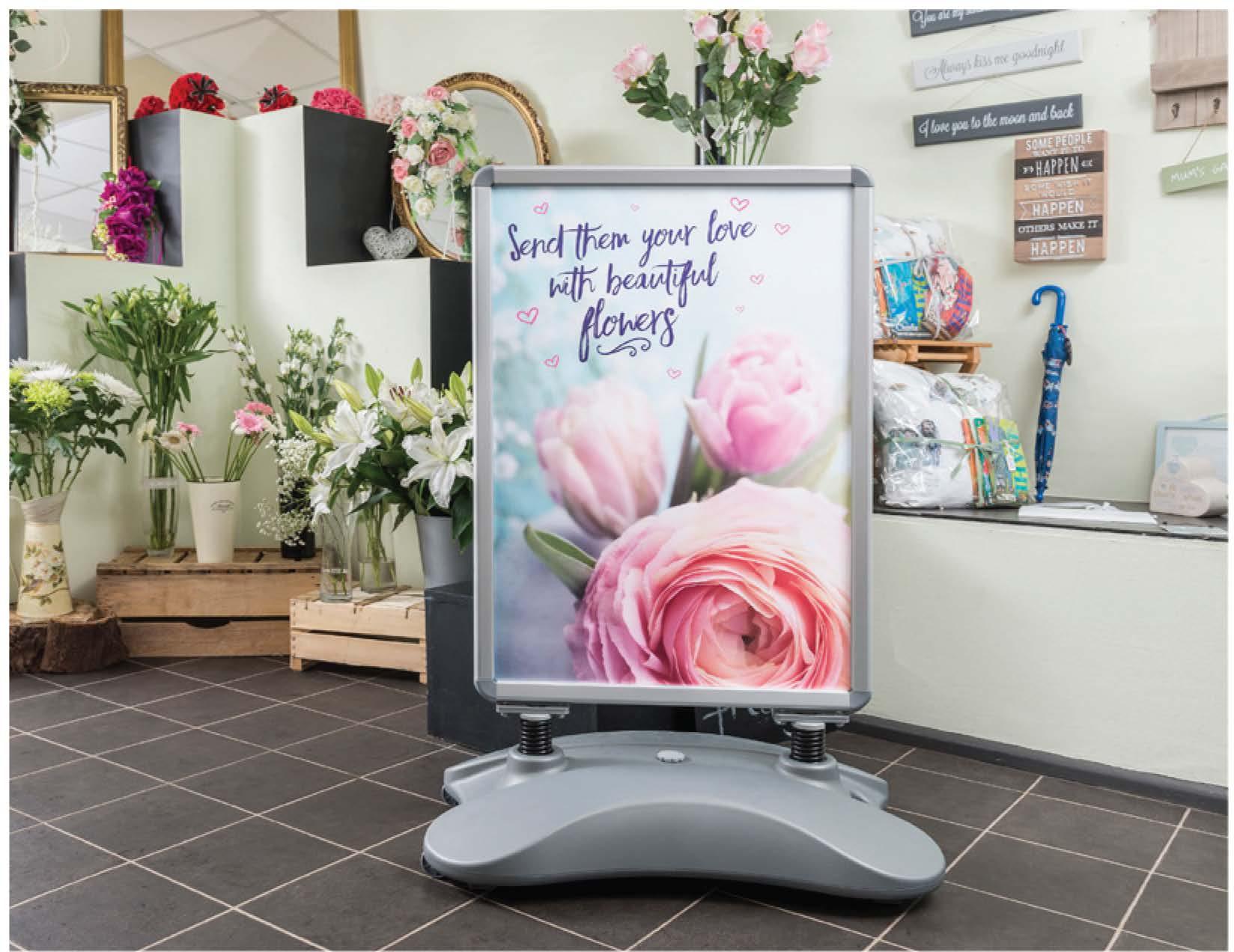

PPE, jan/san and safety supplies reseller Caswells Group has made its second acquisition in two years. The Teesside-based firm has purchased Cutler Cleaning for £1.6 million. Cutlers –founded in 1982 – has an annual revenue of £4.5 million. Headquartered in Macclesfield, it has ten vehicles and operates a 14,000 sq ft warehouse, stocking a range of cleaning, jan/san and PPE products.
Caswells Group Commercial Director Paul Murphy said: “We have worked with Cutler for around ten years and share a similar business ethos. There is a complementary skill set, our teams have worked together closely and, like us, the business has a loyal, longstanding customer base, so it made perfect sense. We’re excited for this next chapter and can’t wait to work with the team.”
Paul Whitehead, previous Managing Director at Cutler Cleaning, stated: “I had been looking to retire and sell the business, but wanted to protect the interests of our customers and staff during that process. We have worked with Caswells for many years [as part of the Jangro dealer group] and I know this is a positive move which will ensure the ongoing success of the business and be of great benefit to both sides.”
Read Gearing up for the future on page 12 for an in-depth look at the acquisition and Caswells Group.
MBM Omega has scooped the coveted Sustainability prize at this year’s National Business Awards. Following success at the Surrey Business Awards in 2023, the dealer won the national award after seeing off competition from other regional winners.
The judges were impressed with MBM Omega’s ongoing commitment to sustainability, including initiatives such as comprehensive environmental reporting, eco product audits, client carbon footprint measurement and environmental purchase trend analysis.

Additionally, the company offers 100% electric delivery options, practices sustainable supply chain management and conducts employee engagement and training programmes.
James Morton (left), MBM Omega’s Managing Director, said: “We are so immensely proud of this achievement. Sustainability is a core value for us and the majority of our customers, and we continuously seek ways to enhance our environmental performance while advising clients on best practice procurement methods.”
The British Safety Industry Federation (BSIF) is urging buyers and wearers of PPE to review their stock and replace old and damaged items. Its call comes after a member survey showed “outdated and poorly maintained PPE” is in use across UK workplaces, something the association called a “worrying trend”.

“The survey of BSIF members –comprising manufacturers and distributors of PPE that frequently visit workplaces across the country –highlighted the prevalence of substandard products in use in Britain’s workplaces,” said the BSIF. “The findings emphasise the urgent need for employers and workers to prioritise PPE evaluation and renewal as they prepare for the year ahead.”
The findings include:
• Many workers are using high-visibility clothing that is so dirty or worn that it no longer meets safety standards or functions as intended.
• Safety helmets with severe wear and tear are said to be a common sight in UK workplaces.
• Poorly maintained and ripped clothing is in regular use.
• Members frequently came across examples of disposable respiratory protection still in use that should have been replaced.
• Respondents noted that buyers often prioritise cost over fit and performance, leading to the use of non-compliant products that compromise safety.
• Workers wearing PPE incorrectly – for example, helmets dangling loosely or gloves not being secured properly – pose significant risks to their effectiveness.
“It’s not enough for PPE to simply meet basic standards; it must be maintained and fit for purpose at all times to ensure worker safety,” said BSIF CEO Alan Murray. He added: “As one of the survey respondents highlighted, the misconception that ‘any PPE is good enough’ is a dangerous mindset that leads to preventable injuries.”
United UK’s Vantage programme has been shortlisted as a finalist for Supply Chain Sustainability Project of the Year at the 2025 edie Awards. Now in their 18th year, the presentation ceremony will take place on 13 March at the 02 in London.
United Managing Director Graham Bourton stated: “The edie Awards recognise outstanding leadership in sustainability, a cause at the heart of everything we do. We are very proud of this recognition and this achievement is a testament to the incredible dedication of Team United in driving a more sustainable future.”
In other news, the reseller has chosen Access Sport as its national charity partner for 2025. As part of the partnership, United has pledged to donate £200 to Access Sport for every spend review, regardless of outcome.
Beyond financial contributions, the reseller’s employees will play an active role by volunteering their time and resources to support the charity’s nationwide initiatives. They will also connect directly with young people in local communities.
UPM Raflatac has entered into a partnership with Highlands to boost the sale of the manufacturer’s office products in the UK. Since 1 January, Highlands has been supporting the growth ambitions of UPM Raflatac’s sticky notes business under the brands inFO Notes and UPM Notes.
The vendor is one of the world’s largest sticky notes producers having acquired Global Notes owner AMC in 2022. Ville Pollari, Director of Industrials & Office Products at UPM Raflatac, said the UK market “offers great potential” for the company’s sticky notes.



Paul Smith joins William Penn
Former Mitsubishi Pencil exec Paul Smith has landed a new role at writing instruments distributor William Penn. Smith spent 14 years at Mitsubishi Pencil’s UK operations before leaving the manufacturer at the end of 2024.
Now, he has been named as International Sales Manager for William Penn’s Sheaffer brand in Europe and North America.

ICM strengthens reseller support
InControl Marketing (ICM) has appointed Claire Wilson as Reseller Account Manager. Wilson has previous workplace supplies channel experience having held customer service positions at both Spicers and ZenOffice.
ICM said she will play a key role in advancing its efforts to deploy innovative marketing solutions designed to drive dealer performance and foster profitable growth.

D’Amery joins Arco
Peter D’Amery is the latest ex-Viking executive to join safety specialist Arco. As of 6 January, D’Amery is Regional Sales Director at the Yorkshire-based firm.
A well-known face in the UK business products industry, D’Amery was most recently Sales Director UK & Ireland at Viking UK. He joins former colleagues Simon Allan-Brooks, Andrea Kenna and Isabel Spence at Arco.

Office adds

Kings Office Supplies has announced two recent hires. Joining the Derbyshire-based dealer are Craig Petitt and Louise Webb in the roles of National Sales Manager and Field Sales Executive, respectively.
Petitt has more than 35 years of experience in the business supplies sector and will be focusing on driving Kings’ growth in the office furniture category. Meanwhile, Webb has joined the company from local charity Children First Derby, where she spent almost five years as a Fundraising Coordinator.
Terms have now been agreed on a new multiyear trading agreement for VOW to continue to be EO Group’s key business supplies wholesale partner. This, they said, represents a major commitment from both parties and the continuation of a close trading relationship.
Adrian Butler, VOW Managing Director, commented: “We do not take the loyalty of our customers for granted, and we believe we have a compelling proposition to help EO Group grow and develop its business over the next few years.”
Kath Briggs, EO Group Global Buying Director, added: “Having built a strong business relationship over the past five years, we are delighted to have signed a new agreement with VOW. This allows us to strengthen our relationship further and focus on common goals and objectives to take our business forward.”

In addition, Office Power has announced a “significant expansion” in its partnership with Exertis Supplies. Citing a “solid commitment to supporting all Office Power dealers in sourcing from various suppliers”, the EO Group unit said it had successfully broadened its negotiated terms with the wholesaler, offering dealers “enhanced flexibility and competitive pricing”.
The companies said that the new trading agreement represents a step change in their current partnership, enabling a strategic collaboration for the long-term success of both parties.
Exertis Supplies Managing Director Andrew Beaumont said: “After many months of working closely together, we are delighted to have reached an agreement with Office Power. This new agreement offers dealers a refreshingly different approach when working in partnership with a wholesaler and one which succeeds in embracing the dealer’s individuality at the same time as maximising the benefits and support offered by Office Power software and services.”
Briggs added: “The new three-year trading agreement is a significant milestone for Office Power since it makes us wholesaler agnostic, meaning our dealers can now choose their wholesale partner while benefiting from our software and services. The agreement covers all aspects of trading, including marketing and dealer support from Exertis Supplies, and further strengthens our commitment to provide dealers with choice and value for money.”

Workplace360 is saddened to learn of the passing of former stationery and office products executive Roger Murphy. He passed away peacefully on 23 December at the age of 92.
Roger began his career in the OP industry in 1955 when he joined wholesaler Neville and Gladstone as a sales rep. In the 1960s, he founded Luton-based wholesaler Murfax with lifelong friend and business partner Harold Waller. After selling Murfax to John Heath in 1986, Roger stayed on as a consultant before joining Kingfield Wholesale, reporting to then Managing Director Alan Hickman. He retired in 1995.
Roger and his late wife, Helen, were well-known and popular figures in the stationery trade. Roger was a member of The Society of Old Friends and served as its President from 1990-91. He also served as a Trustee, Chair and Vice Chair of the BOSS Benevolent Fund – now the BOSS Business Supplies Charity.
W360 extends its deepest sympathies to Roger’s daughters, Jean and Sue, and the whole Murphy family.
Labour MP for Rossendale and Darwen Andy MacNae recently showed his support for Nemo Office Club’s Keep It Local campaign by visiting My Total Office Solutions. This is the third such meeting between a Nemo Office Club reseller and their local member of Parliament after the dealer group sent personal invites to the MPs of all its dealers.
My Total Office Solutions Managing Director Darren Turner (left) commented: “The Keep It Local campaign is excellent for raising awareness of the challenges we face and drumming up local business. The visit from our local MP demonstrates the support behind the campaign and it was fantastic to be able to discuss the issues in person.”
He added: “The recent government changes to employer national insurance and the further substantial increase in wages mean we have to find an additional £30,000 next year just to keep the lights on. This cannot come from price increases alone; we have to win substantially more local business contracts, and for that we need help from our local leaders in the form of connections and introductions to help achieve the needed growth.

“Andy was keen to help, listened and came up with some good suggestions. He also agreed to connect us to the right contacts within our local council and towns as well as make introductions to the micro- and small businesses that we can really help in the local area with our solutions.”

Senior appointments at evo

Experienced business products executive Martin Weedall has rejoined evo in the new role of Group Logistics Director.
Reporting to CEO Andrew Gale, Weedall has taken on responsibility for both the Warehouses and Transport (including Truline) teams. He previously spent more than 30 years at various iterations and subsidiaries of evo before leaving to become Operations Director at rival firm OT Group in 2022.
Meanwhile, another senior hire at evo is that of Keir Hayter as Channel Director at VOW Wholesale. She has joined the business from healthcare supplier TSL where she was most recently Head of Multichannel Sales.

As of 1 January 2025, SC Johnson (SCJ) Professional has a new General Manager for its operations in Europe. Taking on the role of Executive Director and General Manager for the company’s European B2B business is Antonio – Toto – Brambilla.
Succeeding Lee Mellor, he has been with SCJ on the consumer side for 20 years in a number of sales and marketing roles, primarily in Italy and southern Europe.
Most recently, he was SCJ’s Senior Director, Marketing Commercialisation for Europe, where he drove market share gains three years in a row. He also accelerated the sustainability agenda by leading initiatives around plastic reduction and recycling.

Simon Williams has joined ExaClair as Business Development Manager for UK Retail Sales. With over 12 years at 3M, most recently as UK North Europe Shopper Marketing Lead, he brings a wealth of experience and expertise in business products to his new role.
Williams has also enjoyed stints at Mattel and HSBC in marketing and branding roles.
Amid shifting trends and new opportunities, what’s next for the workplace supplies industry?

Back in 2023, the state of the industry report by Martin Wilde Associates (MWA) and OPI found that the majority of survey respondents –76% – believed core OP market volumes had declined during the year.
In value terms, 41% said the market had decreased in the same period. This compares to an expected decline of core OP market value by as many as 56% of respondents in 2024. It is already clear that last year has been another turbulent period for the industry, with mergers, business failures and consolidation continuing to cause disruption.
Against this backdrop, MWA and OPI will once again investigate how the market actually performed in 2024 and what the prospects are for 2025. The State Of The Business Products Industry 2024-2025, the twelfth edition of this annual sourcebook for sector leaders, will be looking at a broad range of topics:
• What has been happening with core OP volume demand in 2024 and what strategies are being put in place to lessen the impact of falling unit sales?
• Office furniture and education supplies have performed well in recent years: what shares of total revenue were accounted for these product categories in 2024 – and what are the expectations for 2025?
• Which other new products and services have emerged as opportunities?
• What is the estimated current market penetration of Amazon and Amazon Business; what can resellers do to respond?
• Which new channels/distributors have surfaced in 2024?
• How important are online marketplaces/platforms and what are the key players?
Some of the best minds in the industry – senior executives from key business supplies companies in the
UK, Australia, Benelux, Canada, France, Germany and the US – will be answering the above questions and many more besides. The State Of The Business Products Industry 2024-2025 is based on approximately 45 indepth online interviews.
Several crucial KPIs will be examined in detail. They include respondents’ overall revenue and margin trends in 2024/2025 as well as resellers’ average order values. Additionally, what share of sales are accounted for by jan/san supplies, breakroom/catering products, workwear/PPE and MPS in the timeframe? And how big a role does online revenue play – what percentage of sales is generated via the web?
Keep ahead of the curve and arm yourself with all the information you need
The research will further report on interviewees’ perceptions of the main growth – and declining –product categories and distribution channels during the investigated period. It will also detail the 2024 financial performance of the key 15 business supplies distributors in Europe, the US and Australia.
The workplace supplies industry continues to change fast, internally and as a result of fluctuating macroeconomic influences. Keep ahead of the curve and arm yourself with all the information you need from both peers and competitors with The State Of The Business Products Industry 2024-2025
The State Of The Business Products Industry 2024-2025 will be published in April/May 2025. The report is available for only £725 if ordered before 31 March 2025 and £995 thereafter. To order your copy, visit: opi.net/soti2025
• Featuring a ribbed rubber grip, it provides extra comfort and helps prevent writer's cramp.
• The durable chiselled nib allows for versatile line widths, making it perfect for highlighting or underlining without collapsing.
• Ideal for the office, classroom, or home, it brings your notes to life with vibrant colours while keeping your information organised.
• Available in a range of colours and pack sizes to suit your needs.

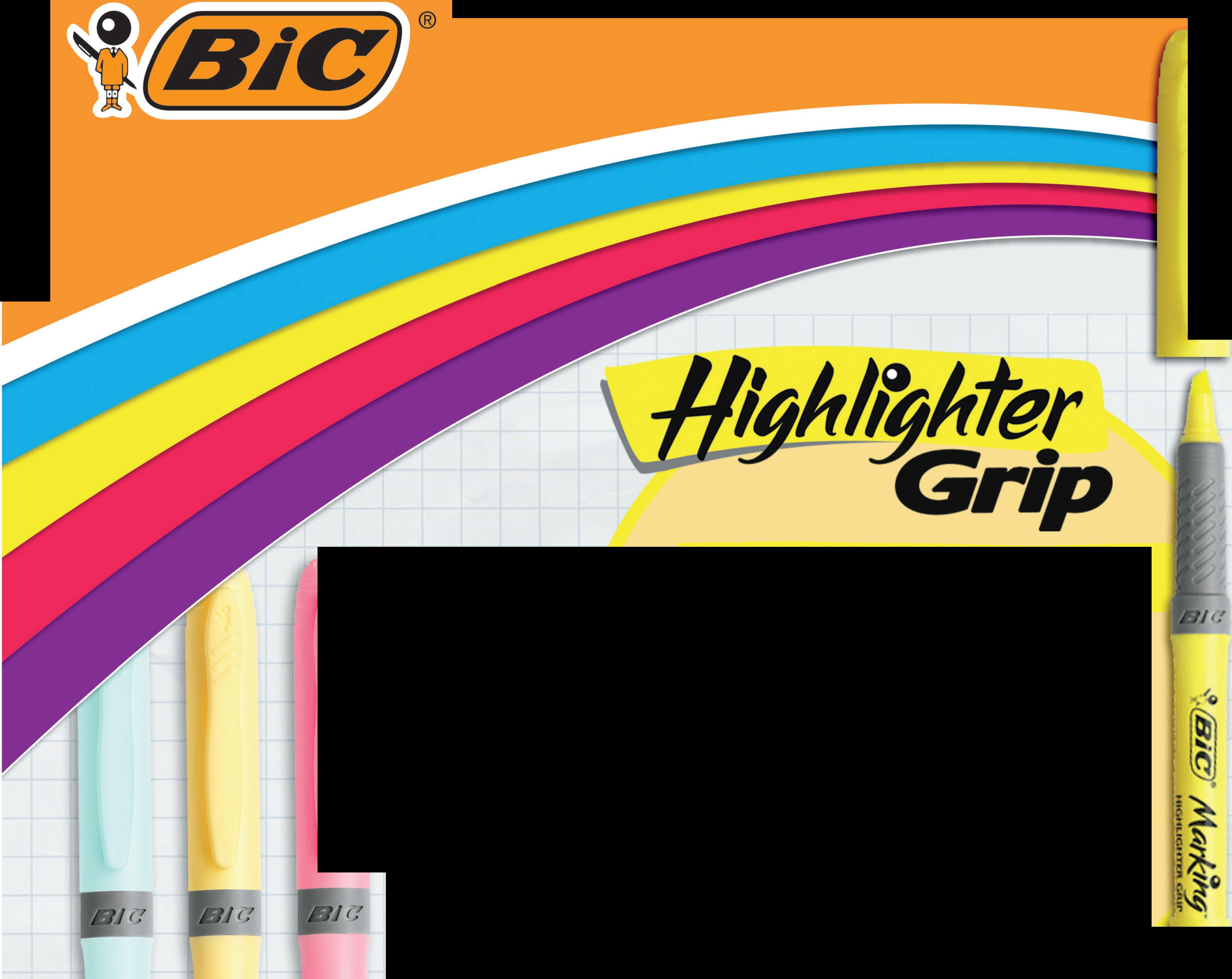




Togain a full appreciation of safety and MRO reseller Caswells Group, it’s essential to trace its journey back to its foundation over five decades ago. Established in 1972 by Derek Caswell in Billingham, Teesside, the reseller’s roots are firmly planted in the North East – a region once synonymous with heavy industries such as steelworks, shipbuilding and coal mining.
Caswells was founded on a straightforward mission: to provide everything for a ‘worker in a cabin’. This ranged from overalls, boots and a hard hat to a kettle, two-ring hob, pens and a mug. Over the years, this modest concept has blossomed into a diverse portfolio and extensive offering that now encompasses PPE, workwear, safety equipment, tooling, workplace supplies, and more.
While the reseller has experienced steady growth throughout its history, the pandemic proved to be a turning point for the business. “COVID was a gamechanger for us,” acknowledges Commercial Director Paul Murphy. “We entered the pandemic in a strong position and a turnover of £14.5 million. Although industrial supplies tailed off, healthcare demand soared, enabling us to maintain the status quo.”
Unlike competitors that capitalised on the crisis, Caswells took a principled approach. Amid widespread price hikes, it remained committed to fairness, ensuring customers had access to essential PPE and sanitising products. “We could have easily quadrupled prices and made a fortune, but we didn’t,” Murphy reflects. “Instead, we prioritised our longstanding clients, spreading resources fairly.”
£28.5 million

This ethical stance not only cemented existing relationships but also attracted new customers. In 2021, revenue rose to £17.5 million as businesses discovered the company’s range beyond sanitising products. Today, sales sit shy of £29 million, with expectations to reach £33 million this year.
Caswells’ ambitions didn’t end after weathering the pandemic. In 2024, the company took a bold step by acquiring Jarreds Office Supplies, a traditional OP dealer also based in Billingham. This acquisition was a natural progression after years of collaboration.
Murphy explains: “We’d dabbled in stationery and business products before, but it was more of a side note. If a customer needed something, we’d often fulfil the order through Jarreds, so acquiring the firm gave us the chance to expand our portfolio. All our clients need workplace supplies – and now they’re buying them from us.”
The integration of the two companies has been carefully managed. “We started by gradually combining stock and initially kept operations separate, housing the Jarreds team in a different building,” Murphy shares. Over time, the teams were brought together in the main sales office, creating opportunities for mutual learning. “They introduced us to workplace supplies and we shared our know-how in PPE and industrial tools. It’s been a symbiotic relationship.”
This measured undertaking extended to customers, many of whom had been loyal to Jarreds for decades. Notes Murphy: “We couldn’t just say, ‘Right, everything changes now.’ We’ve taken a step-by-step approach to ensure continuity and build trust.”

We could have easily quadrupled prices and made a fortune, but we didn’t
The acquisition opened new doors for Caswells, particularly in the healthcare and education sectors. “Historically, we weren’t big in those areas,” Murphy states. “But Jarreds’ expertise has enabled us to explore new possibilities.”
As a result, Caswells now benefits from an extended number of wholesalers and buying/dealer groups. Already a member of Jangro for cleaning and jan/san supplies, the reseller became part of Advantia through Jarreds. “We knew VOW already as in the past, we’d used it for items where we couldn’t compete with giants like Makro,” Murphy explains, adding that most products are still sourced directly from manufacturers due to its high-volume spend.
Caswells current warehouse spans 140,000 sq ft and holds £4.5 million in stock, while deliveries are handled through in-house logistics and external couriers, including local long-haul pallet firms and DPD. “If the supply chain gets a little sketchy, then with workwear, for example, we’ll turn to wholesalers such as PenCarrie, RalaWise and BTC to fulfil orders.”
Aiming to build on last year’s momentum, Caswells has started 2025 with a bang, further broadening its skills base and expanding its geographic spread with the acquisition of Macclesfield-based Cutler Cleaning – a jan/san and PPE specialist with a good foothold in healthcare and education. “It’s a natural fit,” says Murphy.
£4.5 million VALUE OF STOCK HELD IN WAREHOUSE
NO. OF YEARS IN BUSINESS

For now, Cutler will operate as a standalone entity under the Caswells Group umbrella. “The Cutler team has decades of experience and a strong bond with the name, so we want to preserve that loyalty while moving forward together,” he adds. Both companies use different ERP systems, so work is currently underway to ensure full integration by September.
Although Cutler will continue to operate under its own brand for the foreseeable future, it marks a significant milestone for its new parent company. While Caswells already serves the UK and Ireland from its large facility in the North East, the aim is to establish multiple locations across the country – with Cutler representing the first step in this long-term strategy.
Customer relationships are the cornerstone of Caswells’ success. From long-standing industrial clients to newer partnerships in workplace supplies, the firm prides itself on delivering personalised service. “We’ve always been about doing right by our customers,” Murphy emphasises. “It’s why they trust us.”
This confidence is reflected in enduring associations. “Geoffrey Robinson, for example, has been with us since the beginning,” he notes, “and we’ve grown alongside them. Similarly, we supply Nestlé with millions of pounds worth of PPE and workwear across its UK sites.”
Caswells’ product range is comprehensive, with workwear and PPE leading the way, followed by jan/ san supplies, tooling and consumables as well as numerous other categories. A standout feature is its in-house services such as custom hose manufacturing for industries like food and beverage and aviation, overseeing every stage from production to compliance.
“We also have a branding centre where we handle everything from embroidery and signage to heat sealing and pad printing for safety helmets,” Murphy highlights. “Unlike our larger national competitors that outsource pad printing, we do it in-house for major PPE suppliers.”
Despite a tradition of account management, Caswells recognises the increasing importance of e-commerce, offering bespoke online portals with customised pricing, ordering systems and product selections. “We go out and speak to our customers to understand what they need, and then we create a portal to suit them. For aspects such as workwear branding, the portals make it much easier as clients can put through requests online. In addition, customers can use our standard e-commerce site and/or PunchOut too,” says Murphy.
Online sales stand at £6 million and while this does not represent the vast majority of transactions yet, they continue to grow exponentially. Murphy is encouraged by the shift: “It takes the pressure off the internal sales team by removing the order bashing so they can be more proactive with their customer accounts,” he states.
We’ve always been about doing right by our customers
He is also pleased with Caswells’ direction on the sustainability front, although like many companies, it faces challenges in dealing with the complexities of balancing progress with environmental impact. “We sell clothing made from recycled materials, but the energy consumption involved in recycling can be higher than virgin materials,” Murphy acknowledges. Nevertheless, he remains optimistic about the potential for change: “For every good, there’s a negative somewhere down the line, but we have to focus on the positive,” he says.
“I have discussed recycled workwear extensively with Northumberland Water and it is currently impossible for the water authority to capture all microplastics. So, we must do as much as we can. Regatta workwear, for instance, incorporates ocean plastic, so while some microplastics will still end up back in the water, big chunks of plastic are being removed; it’s also better than taking plastic bottles from a manufacturing factory.”
In addition, partnering with Planet Mark reflects the company’s determination to reduce its carbon footprint over the next ten years.
Already among the top three resellers for PPE and workwear in the North East, the regeneration of the Tees Valley promises further opportunities. Advancements in manufacturing, engineering, energy and bioscience sectors in the region align perfectly with the company’s product and service offerings. Now, with national expansion firmly in its sights, Caswells Group is poised for continued growth.
140,000 WAREHOUSE SIZE IN SQ FT £6 million VALUE OF ONLINE SALES





In the world of safety products and workwear, the three Cs –compliance, conformity and certification – are not mere checkboxes for Beeswift CEO Darren Washbourne; they are embedded in the company’s DNA. But with a sharp focus on expanding its horizons and driving sustainability, Beeswift is evolving. Workplace360 CEO Steve Hilleard travelled to Birmingham to learn more
Workplace360: You’ve been part of the workplace supplies world for quite a while, but what’s your career journey?
Darren Washbourne: That’s right, although I consider myself a safety products person as I’ve been in the trade since I was 19. I was a partner in a business for a couple of years, following which I ended up at Corporate Express with another of my colleagues kicking off a safety division. This was in 2004 and how I’m connected to the OP trade. I was never really an OP person though, although my responsibilities at Corporate Express and Staples stretched to all categories in the end. My heart and roots have always been in PPE and safety.
My relationship with Beeswift goes back a long way, starting in the late 1980s when I used to sell safety products to the company. Later, at Corporate Express and Staples, Beeswift became our primary supplier for all PPE and workwear. When Staples struggled in the UK following a poor transition in 2015, I, like many others, decided by 2017 it was time to move on. For me, Beeswift felt like the right home.
W360: Let’s talk about Beeswift. Can you tell us about the history of the company?
DW: Beeswift was founded in 1981 by two entrepreneurs in the West Midlands who started importing PPE and safety equipment. As I mentioned, in the late 1980s I worked for a safety products manufacturer, which is how I first connected with them. The son of one of the founders still works for us, which is really nice. In 1986, they wanted to prepare to exit the business and the Gerber Goldschmidt Group acquired the company.
The group is a fourth-generation family organisation and our Exec Chairman traces the company’s origins back to his great-grandfather, who started the business in 1920. It’s a group steeped in history, owning companies across a number of continents.
Though Gerber Goldschmidt operates in a wide range of sectors, for the Beeswift division, the focus is on people protection. It’s a sizeable organisation with a turnover of $750 million – Beeswift UK contributes about 10% to that.
I feel fortunate to get the best of both worlds – a company with scale but also the flexibility and agility that comes with being privately owned. Decisions are made quickly, and there’s a genuine interest and engagement throughout the business.
W360: How many employees do you have?
DW: We have about 150 staff members, operating across three shifts at peak trading. We don’t do this during the summer because our trade is sadly too seasonal, although we are working on that! We also own a business in the Netherlands. It’s smaller but growing, having relocated in December 2023 to larger premises.
W360: In a nutshell, what’s the business model?
DW: Our core market would be resellers/distributors selling safety products. While we are the OEM of 80% of products, we also wholesale some proprietary brands. Over the years, adding proprietary brands to our portfolio such as Dunlop, Dupont, Bollé and 3M has allowed us to wholesale products on behalf of these OEMs to smaller organisations that would not ordinarily get access to their products and services.
W360: Who are your typical reseller customers?
DW: Our core business consists of regional or national specialists. They don’t all just focus on PPE but typically offer a wide range of products, including contractors tools and site safety items. They also do some facilities products, maybe some paper and jan/san as well as signage and guarding safety equipment – road signs, cones, barriers, etc. PPE is just one component, albeit significant in the broader range of products required on sites and in factories.
While we are the OEM of 80% of products, we also wholesale some proprietary brands
W360: You said Beeswift represents about 10% of the group’s overall sales. That would put you at around £60 million.
DW: Yes, for the UK, plus we own Beeswift BV in Almelo which serves our EU marketplace directly post-Brexit.
W360: How did COVID impact the company?
DW: During COVID, we experienced a significant increase in sales from our existing cost structure, which brought some benefits. As the shareholding family is very focused on growth, it also enabled us to invest further.
The pandemic affected us in many ways. First and foremost, it was 24/7 – we quickly realised the critical
role we had to play. Our customer base was in desperate need of PPE and at the same time we saw a flood of new entrants in the market, often selling substandard or counterfeit products. For a couple of years, it truly felt like the Wild West.
W360: How does the business look now compared to COVID times?
DW: The pandemic was a crazy period, but that’s flattened now. There was also some necessary correction, as some product volumes were really turbulent. Post-COVID, we’ve been adding customers, products and licences and continued to grow, which is nice. We’ve also implemented the same ERP and WMS systems across both our UK and Dutch facilities, ensuring consistency in operations, platforms and data.
W360: So what’s the UK market value of the safety sector and who are your main competitors?
DW: The PPE and workwear market is worth about £1.6 billion. In terms of competition based on our full range, it would be Portwest in the UK and, from a European perspective, Delta Plus. In addition to these, we also face competition from regional players offering a narrower assortment.
W360: Against such companies, what makes Beeswift stand out? What are its USPs?
DW: How we manage and ensure product compliance is definitely a USP. We have a flat management structure with a very engaged ownership team. This enables us to make decisions quickly, pivot when needed and try different approaches.
One of our real strengths is our online trading platform. 70% of our sales come via e-commerce and we have a super platform, Beeswiftonline.com. It provides everything specifically for resellers/distributors, including order processing and a marketing package that allows bespoke customer product posters, flyers and much more. It really is a one-stop shop if you want to sell PPE and safety.
W360: All self-serve?
DW: All self-serve. On top of that, we have a drop-ship model for distributors and dealers. If they want to do it with discrete paperwork or their own livery, they can upload all that into the platform as well.
We have a flat management structure with a very engaged ownership team


W360: In your industry, what are the typical big product movers?
DW: In our world, the focus is on shielding the parts of the body that need it most. For those working in heavy industry, hand and foot protection is crucial. For those out on the highways, high-vis gear is a must. Plus, safety above the neck is just as critical and common to most tradespeople – respiratory, eye and ear protection all play key roles.

It’s important to remember that providing this protection is not only good practice but is legally required in most environments. PPE is the last line of defence, and we see our role as ensuring that the products we manufacture and supply help people get home to their families safely at the end of each day.
W360: You’ve been CEO for just over a year now. When you took on the role, what did the owners say to you and what targets did you set yourself?
DW: The owners carry a significant family legacy, so building a stable business for the long term is key. But that must be linked to growth and extending our offering to include the next generation of products which support sustainability and, crucially, circularity. I guess the overriding goal is to make the transition into a larger corporate organisation.
When I joined, we didn’t have a clear value proposition or a leadership team, which meant the decision-making rested too much on one person’s shoulders. We weren’t leveraging the skills and the benefits of the broader business, but we do now. We’ve also added a CRM system, a robust data team and tools such as Power BI, among others.
Some of the strategies implemented actually came from my years spent in office supplies. It’s a much more mature industry – a bit crazy in terms of service – but I got a lot of personal benefits out of being in that space for a while.
W360: Learning how to do it but also how not to do it?
DW: There are lessons in both. It was 2004 when I
PPE is the last line of defence, and we see our role as ensuring that the products we manufacture and supply help people get home to their families safely at the end of each day
first walked into Corporate Express with my former business partner and we found ourselves in this huge global organisation. Navigating and trying to influence people in that environment was interesting because nobody was interested in PPE then – they were all focused on selling pens.
We used to call PPE “pens, pencils and envelopes” because it was the only way we could get people to take an interest in what we were doing.
W360: Glad you’ve just thrown out some initials as I want to ask you about Beeswift’s three C’s.
DW: Compliance, conformity and certification – are all part of our DNA. We’re here to provide products that protect people, so the three C’s are central to everything we do. However, now it’s gone beyond physical goods and incorporates the environment, sustainability and ethics. We operate with family morals and the three C’s are a function of this.
W360: What are your views on how the market has evolved – especially with online marketplaces – and some of the products that are now out there?
DW: First and foremost, I’d urge everyone – whether a dealer, purchaser or end user – to only buy products from a British Safety Industry Federation (BSIF) accredited organisation. That’s important.
With online trading platforms, there’s a clear need for more rigour and regulation, especially concerning product quality. The BSIF regularly highlight products that claim to meet every standard possible, when in reality their origin is actually from an unregistered, dubious source.
We have had more interaction with online sellers since we secured the JCB licence, as it offers both safety and non-safety products – such as certified footwear – and more generic workwear and clothing.
Many of our distributor customers trade through these platforms as well, but they do so in the knowledge that the product they buy from Beeswift is fully compliant and BSIF accredited.

That said, it’s not uncommon for people to use our marketing collateral without selling our actual products, which creates risk. Our marketing team is vigilant, but I doubt there’s a business in the land able to keep on top of it 24/7.
W360: With your online portal in mind, how easy is it for technology providers like Prima Software and ECI to interact with you?
DW: We struck a deal with Prima around three years ago, so dealers using its platform have seamless access to all our data, live stock information and uploads. Even if they are not operating through one of those kinds of portals, signing up for an account at Beeswiftonline.com will still provide everything required to interact with us.
W360: You’ve mentioned JCB. Tell us a bit about that partnership.
DW: In July 2024, Beeswift became JCB’s exclusive licensee for the UK and Europe. As part of this, we acquired the stock, and physical and digital assets from its previous partner. We’re now in the process of rebuilding the stock while also developing nextgeneration products. We have an ambitious plan to drive JCB-branded product sales across our territories.
W360: Why would anyone want to buy a JCB-branded workwear product?
DW: In the UK, two major brands of workwear –Caterpillar and DeWalt – dominate the market and have a strong following among tradespeople. JCB is already a significant player in that space, but it has big ambitions to grow further.
Today, many people want workwear which is not only practical for the job but also stylish enough to wear out afterwards – whether they’re heading to the pub or elsewhere. That’s the market we’re targeting.
W360: Can you see other similar collaborations on the horizon?
DW: Not in that sector, as the JCB licence prevents us from doing so. However, we are currently exploring opportunities in the sportswear arena. There are some strong brands in the athleisure segment – a market increasingly blending into the workwear space – and I can certainly see that becoming a bigger component of our business.
It’s not good enough just listing a few products [...] Too many dealers still think safety products can be treated like any other consumable, but they require a higher level of specialism
W360: Is – let’s call it the OP channel for want of a better phrase – strategically important for your company?
DW: Yes is the simple answer. It’s been growing, although the last six to nine months have been more turbulent. As you’ve reported, some organisations in the OP channel have struggled, disappeared or not performed well, which has introduced more risk.
That said, whether it’s a pen, pencil, envelope or a piece of safety equipment, these are products used by organisations every day. So, accessing this market should be relatively straightforward with the right level of commitment. The OP sector serves an enormous customer base, including companies with significant PPE requirements.
W360: What about your relationships with VOW, Office Friendly, etc?
DW: We’ve worked with all the major wholesalers and buying groups for quite some time, though some of their members perform better than others. We had a good relationship with OT Group for a while – as it was located close to us – and we still sell through VOW. But, I do believe that the business supplies market as a whole continues to face challenges.
W360: You said some resellers do a better job than others. What, in your opinion, makes them successful in the safety world?
DW: It’s not good enough just listing a few products in a catalogue or adding them to a website. Too many dealers still think safety products can be treated like any other consumable, but they require a higher level of specialism. Those that do well have invested in both people and stock. While a broad assortment can be sourced from Beeswift with drop-shipping and other services, the real success comes from a commitment to making inroads with their existing customer base.
W360: When Wendy [Goodman] rocks up at industry events, what’s her message and how are you trying to get dealers to engage?
DW: It’s about understanding the level of interaction that delivers for both businesses. Wendy, our National Account Manager, is super keen, enthusiastic and wellknown throughout the workplace supplies industry. It works when a dealer comes to us and says: “I’ve got five

customers. They’ve got an expenditure line of X, Y and Z on PPE. How do we tackle it?”
Wendy and the team step in to help strategise and provide support. But it’s not just about adding a few products to an order; it’s about committing to stock and serving a customer’s safety needs over the long term.
W360: Training is obviously a key part of supporting resellers with their specific end-user requirements.
DW: You’ve seen this is a really nice facility and the room at the end is our dedicated training area. I bet Wendy had a group of people in there every week last year for hands-on product training. If the training is not related to our products, then we’ll bring in OEMs to provide their expertise as well.
I don’t think it’s particularly difficult to gain the knowledge and awareness needed. If a dealer is serious about it, having at least one employee dedicated to the category is a smart move. That way, they can develop in-house know-how while also still benefitting from the external training and support we provide.
W360: OK, let’s take hand protection, for example. It’s an important category, but with a thousand different types of gloves, it’s easy to see why dealers might hesitate to step over the threshold.
DW: Ultimately, the responsibility for risk assessment lies with the organisation and the wearer, not the
reseller. We offer gloves to suit all kinds of needs, and as long as you understand the required specifications, you can confidently supply the right product. The key is to trust your source, which is why our three C’s are so crucial. It’s about ensuring safety at every level.
W360: Since we’re exploring initials and acronyms, let’s talk about ESG, particularly sustainability and your Envirowear range.
DW: We’ve completed all our assessments and are proud to be carbon neutral in the UK. But, of course, there’s always the wider supply chain to consider. We’ve also achieved EcoVadis Gold for three years running.
One of our core focuses – and where we’ve made substantial investments – is on what happens to our products at the end of their natural life. Think about a high-vis garment which has become dirty and noncompliant or a pair of torn trousers. Circularity and circular clothing are integral to our future and legislation is coming that ties waste product management to the creation process. For Beeswift, the priority is ensuring that clothing doesn’t end up incinerated or in landfill after its first life.
Envirowear is our entry into circularity and, as far as I know, it remains the only 100% recycled and 100% recyclable workwear in the market. It’s generated a huge amount of interest. The product is made entirely from post-consumer waste and we partner with a

company called Project Reclaim, which works with the Salvation Army to handle the recycling.
As long as the product is returned for recycling, it can have a second life. It can be re-spun into yarn to create another garment or moulded into a new product, like a tote or a tray. The moulding possibilities are impressive. The key feature of Envirowear is ensuring that the product doesn’t just live once.
W360: What role do you see for Beeswift in helping dealers understand the carbon footprint of the products you sell as well as their own impact?
DW: Right now, the UK produces 40 million workwear garments annually, and 90% of those end up incinerated –a ridiculous number and a crazy amount of waste. This behaviour has to change.
As an industry, we have to be more vocal – whether it’s just the workwear and safety sector or all sectors. I believe legislation will be a major driver here, and we’re starting to see the early signs of that.
W360: Final question. Thinking about your own business, what will be taxing you in 2025?
DW: Our top priority will be driving Envirowear and
The key feature of Envirowear is ensuring that the product doesn’t just live once
sustainability. This will be at the heart of everything we do. With JCB, managing a brand of such stature comes with great responsibility, so we will ensure we dedicate time to its development. From a group perspective, there are always discussions about acquisitions, but ultimately, we need to focus on being a good employer. This means attracting top talent, utilising our team effectively and doing the right thing.
W360: And, of course, employing people will be a lot more expensive this year.
DW: The impact of the Autumn Budget will certainly affect us, just as it will any company with a significant number of employees. From a budgeting point of view, we’d factored in our expectations for a national insurance increase, although not a change in the threshold. My main concern is that these surprises damage businesses of all sizes and it takes time to recover from the shock.
W360: Has it affected your appetite for investment?
DW: It certainly won’t change the shareholders’ drive to grow and expand our brands, but we’re not immune to these costs and they are significant for us. They have an impact, particularly on price points, which will get passed on down the line.
I don’t anticipate a slowdown in sales, but a real challenge will be finding ways to recover these increased costs.
W360: Thanks Darren, and good luck with the rest of the year.




The future is complex, but with the right tools and insights, it’s full of possibility
As we enter 2025, the EO Group and Office Power team are looking at ways dealers can adopt innovative technologies to enhance efficiency, meet evolving customer demand and stay ahead of competitors.

Navigating shifting behaviours and markets – Nick
The business supplies market may be shrinking, but it’s far from drying up. Think of it as a lake that is becoming quieter – while some companies have left the waters and others have merged into larger ecosystems, there’s still enough depth and flow to sustain those that adapt. For those remaining, the challenge is not merely to survive but to thrive in a more concentrated and competitive space.
The new economic pressures stemming from the UK government’s Autumn Budget 2024 complicate this picture. For SMBs, the increased national minimum wage, higher employer national insurance contributions and a potential end to the fuel duty reduction will escalate operating costs, especially for logistics-heavy sectors like workplace supplies.
While smaller properties benefit from some relief in business rates, the scaling back in inheritance tax exemptions and rising capital gains tax adds further uncertainty for family-run businesses and those looking to exit the market.
The future of workplace supplies lies at the intersection of diversification and sustainability
These changes demand a sharper focus on value. Dealers must demonstrate their worth to customers, positioning themselves as indispensable partners rather than non-core cost centres. CFOs scrutinising
budgets will target areas that lack tangible returns, so communicating where your solution adds efficiency, streamlines costs or delivers innovation is critical in weathering the shifting tides.
Dealers will also face the difficult but necessary task of passing increased costs onto customers. Whether through transparent pricing adjustments, bundled value propositions or highlighting the benefits of improved products and services, finding ways to offset rising costs is essential. Customers are more likely to accept these changes when they see a clear connection between price increases and enhanced value or operational efficiency.

The future of workplace supplies lies at the intersection of diversification and sustainability. As businesses face pressure to reduce their environmental impact, green products are becoming a core focus. Yet true sustainability goes beyond ecofriendly options – it demands robust systems for tracking and reporting carbon footprints.
Frameworks like B-Corp certification and detailed sustainability reporting are becoming essential, underscoring the need for businesses to take control. Aligning with forward-thinking suppliers and adopting advanced technology is critical to meeting evolving ESG demands and impending regulations.
As dealers diversify their supplier base to meet broader business needs, logistical inefficiencies can inadvertently undermine sustainability goals. For example, although convenient, drop-ship models often clash with efforts to consolidate deliveries and reduce carbon emissions. Merging deliveries through a single service or scheduling fewer coordinated delivery days can dramatically lower the environmental impact.
Office Power’s software empowers dealers with multi-basket functionality and delivery scheduling tools,
facilitating a shift from daily drops to more sustainable weekly deliveries. This approach improves operational efficiency, provides transparency and meets the growing sustainability expectations of customers and regulators.
Product diversification is an essential element of category innovation. Dealers must carefully curate their catalogues while maintaining high-quality data and deep supply chain integrations to see that an expanded range does not impact the ability to deliver top-tier service.
Effective product diversification relies on software providers to help merchandise the data correctly, including search optimisation, product attribution, crossselling and upselling. Furthermore, an always-evolving and growing range means a product data strategy should enable constant updates to ensure you don’t fall behind.
Hybrid work is here to stay, meaning the standard product mix will continue to decline. Forward-thinking businesses must identify emerging consumables suitable for the modern working space. We’ve experienced an increase in catering facilities, warehousing and packaging.
A seamless and immersive user experience is crucial as hybrid work continues to reshape end-user needs. This includes providing fresh fruit, snacks, drinks and hygiene products while supporting neurodiverse customers with thoughtful, inclusive offerings.

– Richard Sinclair, co-CEO, EO Group At Office Power, we prioritise the continual development of our platform, actively participate in events and conduct research to understand emerging innovations. A critical trend is the rising importance of cybersecurity in 2025.
As AI-driven threats grow in sophistication, corporate and public sector clients are demanding more robust security measures. Adopting UK government-backed standards like Cyber Essentials Plus and ISO certifications is essential for suppliers to maintain trust and compliance in a volatile digital environment.
Another trending area is sales intelligence and enhanced personalisation. By leveraging machine learning, dealers can refine customer segmentation, predict trends based on historical data and dynamically personalise user experiences.
These capabilities are pushing the boundaries of what’s possible in e-commerce, enabling hyperlocalisation – where products, services and marketing are tailored to specific customer demographics or geographic regions. With tools like ChatGPT gaining traction over traditional search engines, answer-driven discoverability will continue to grow, changing how businesses engage with their audiences.
AI is also transforming the customer service and user experience through chatbots and virtual assistants. These technologies provide real-time support, personalised product recommendations and enriched product data inquiries, creating a more efficient and enjoyable customer journey.
Immersive shopping experiences, including social shopping and advanced product data visualisation, are gaining momentum, especially for high-ticket items.
While integrating augmented or virtual reality into our industry isn’t yet mainstream, it’s an area we continue to monitor for future opportunities, particularly in categories such as furniture.

Winning over the next gen of buyers – Mark Heath, Managing Director, Office Power
To achieve sustained growth, dealers must adapt to the preferences of younger, techsavvy buyers. This new generation values convenience, sustainability and multichannel shopping experiences. They don’t want to leave their ecosystem to make a purchase; they expect social commerce to integrate seamlessly into their daily-use platforms, such as TikTok or Instagram.
The preferences of this demographic extend beyond where they shop to how they shop. They steer clear of lengthy processes, avoid picking up the phone and increasingly rely on advanced AI tools. As a result, discoverability has shifted – SEO remains essential, but Answer Engine Optimisation (AEO) is emerging as a critical focus for businesses that want to be found by AI-driven platforms.
Despite the rise of cutting-edge tools, some traditional marketing methods still hold power. Email marketing is far from dead; in fact, it’s evolving. Personalisation is key, with automated flows ensuring customers receive the right messages at the right time, increasing conversion rates compared to mass email blasts. This year, we’re excited to launch our new email marketing product, PowerConnect, making it easier than ever for dealers to create personalised, targeted campaigns that resonate with their audience.
To achieve sustained growth, dealers must adapt to the preferences of younger, tech-savvy buyers
The new generation of buyers favours reward programmes linked to green incentives over traditional discounts. Whether it’s points that contribute to planting trees or rewards that reduce their carbon footprint, these initiatives align with their values and enhance customer loyalty. Dealers that adopt such programmes stand to build stronger relationships with this environmentally conscious audience.
Technology can help dealers reach these customers and meet their values. For example, sustainabilityfocused logistics, such as consolidated deliveries, resonate with next-gen priorities. Discoverability and multichannel convenience also cater to their demands. By embracing these trends, dealers can secure their place in a rapidly evolving marketplace and position themselves as leaders in serving the next generation of buyers.
Feel free to contact Office Power’s wider team to discuss key topics for 2025. Visit: officepower.net

Alex Dunn, Managing Director, Superstat
There’s an awful lot of doom and gloom around in the news right now. That said, we mostly work with independent businesses in the dealer channel, and they know you can always succeed in the face of economic headwinds by focusing on what you do at a local level.
We’re speaking to many company owners who are interested in making acquisitions as well as those who might not have a succession plan and are looking to exit at some point. There can be pitfalls but there’s normally a win to be had for both parties. A major part of our focus this year will be to help those businesses promote themselves – whether as buyers or sellers – and help facilitate those wins.

Matthew Bennett, Director, Product Promotion Services
Don’t forget the old school stuff that your business was built on. You can manage the decline by offering customers sustainable alternatives and premium options.
What aren’t you selling to your customers? Are they all buying their kettles, teas and coffee from you? If not, why not? Do they know you sell breakroom products? Likewise, jan/san – how many toilets do they have that need supplies and cleaning? Ask questions.
Workplace360 asked senior executives for their thoughts on what 2025 has is store for the UK workplace supplies industry
Steve Carter, Managing Director, Advantia
From the feedback I have had from both our members and Exertis, 2025 appears to have started very well; the challenge is ensuring the good start continues.

I often hear the words ‘when we get back to normal’ in reference to the working landscape, but my own belief is we are now looking at what the new normal is.
The workplace landscape has changed and employers have realised this and are accepting of the fact that staff members want flexibility. Those employees are still going to utilise office products and equipment but not always in the same location they have done previously. As an industry, we have to adapt and find new ways to service our customer base.

Dani Attard, co-founder, Comgem
With the cost of employing people increasing in 2025, businesses will turn to technology to streamline their operations and cut costs. This could be anything from automating repetitive tasks to updating data and automatically processing orders. It will be all about getting your resources to work harder for you so you can do more with less –without sacrificing quality.
Forget the days when you were stuck with whatever products your tech provider offered. In 2025, technology is going to make it incredibly easy for businesses to diversify their product ranges. Map your supplier data once, and your online store automatically updates with all the new products you can offer your customers. Suddenly, you’re not just an office supplier anymore: you’re a one-stop shop for everything from eco-friendly cleaning products to personalised stationery. The possibilities are endless.


Alex Bonarius, Global Sales Director, Pukka Pad
After what seems to have been a challenging year for the industry with the shipping crisis and the effects of the budget, we remain positive and excited for what lies ahead in 2025.
More than ever, we are seeing the importance of a strong brand and the need to work more collaboratively with our customers to ensure the right product is going to market. There will be some freshness in some of our designs this year along with further investment in new product development to diversify our already wide range.

Jeanette Caswell, Managing Director, Office Friendly
Of particular interest will be where AI can be used as a tool to supplement the skills of the workforce, enabling individuals to be engaged in more strategic activities while utilising the technology for simple, repetitive tasks. AI offers smart solutions to save time and cost while retaining and refocusing expertise, talent and skill sets.
A greater focus will be given to the areas delivering growth that reseller organisations have more recently developed strengths in. Core supplies is still an important facet of a reseller’s mix but, as declines continue and with end-user buying/working habits evolving, businesses in our sector will have to keep investing in their chosen specialisms to stimulate future growth.

Mark Wilkinson, Regional VP, ACCO Brands EMEA
2024 was a challenging year for our industry, though it was not without opportunities, and I think 2025 will be very similar. At a macro level, we will see continued geopolitical and political uncertainty, which will again drag on business and consumer sentiment.
Closer to home, the economic outlook is uncertain, with potential challenges on inflation, stubbornly high interest rates, increasing unemployment, and weaker overall growth prospects. Further afield, a Trump-initiated trade war would also dampen business confidence more generally and create further uncertainty.
More positively, many organisations are strongly encouraging their folks back to work and this will help demand. Return to office and hybrid working will still create prospects in many categories, such as ergonomics, furniture, visual communication and technology products – though vendors and resellers will have to be agile and innovative to ensure they can take advantage of them.

Don’t forget the old school stuff that your business was built on
James
Mckeever,
Group Sales & Marketing Director, Sovereign
Business
Solutions
2025 will present challenges as businesses attempt to keep their heads above water as staffing and operational costs rise.
Sustainability will be a central focus, with companies prioritising eco-friendly products, packaging and practices to meet increasing regulatory and consumer pressure. The demand for sustainable workplace supplies, from recycled paper to energy-efficient devices, will rise as companies strive to reduce their environmental impact.

Moreover, e-commerce will remain a dominant force, pushing organisations to improve their digital presence and adopt more efficient delivery models, ensuring fast and cost-effective fulfilment.
Shaun Tidman, Head of Sales, Avery UK 2025 will bring significant macroeconomic changes beyond our control, which play a big part in the business landscape. Our industry will keep evolving as ‘office products’ will continue to include emerging categories as we have seen with workwear and jan/san supplies.

As manufacturers, it is our responsibility to not just maintain our core offerings but to adapt and innovate while making consumers, dealers and wholesalers aware of these innovations. We hope to see some stability with two strong main wholesalers plus some up-and-coming companies making waves.
Ultimately, it will be a challenging year, but I have learnt if there is one thing our sector is good at, it is adapting and overcoming obstacles.

James Stacey, EvolutionX and FusionPlus Solution Consultant, ECI Software Solutions
We see dealers thriving by branching into areas such as workwear, education and print promotion, which are driving significant growth. Furniture is another area that continues to be a huge opportunity.
We’re also seeing the requirement for a web-enhanced customer experience with the expectation of faster search tools, self-service options and secure, reliable SaaS systems. Downtime means fewer orders and more customer support inquiries. Keeping everything up and running is more important than ever.
AI will continue to play a key role in helping businesses work smarter and deliver personalised service, even as inflation and supply chain challenges persist. Sustainability also offers further prospects as companies increasingly adopt eco-friendly practices.
Phil Jones, Managing Director,
Brother UK
Being able to forecast the future with any certainty is near impossible. What I can predict is we’ll have more of the same in terms of shifting demand patterns and changes in the makeup of the channel itself.

Post-pandemic, we are still feeling the ripple effects of the systemic and existential changes it has created in every element of our lives. When you marry that with the significant impact of global geopolitical events on supply chains and technological advancements such as AI to working practices, there is a lot to comprehend.
Economically, the UK outlook is unpredictable with a muted response to the new government’s growth agenda by the private sector. The public sector, however, is expected to see more budget so we could all see opportunity in this area.
Aidan McDonough, Managing Director, Integra Business Solutions

UK businesses will feel the impact of the national insurance contributions increase coming into effect in April through higher costs of goods, ultimately leading to price increases. If every sector takes a similar view, I do have concerns regarding inflation remaining stubbornly high and subsequently interest rates not dropping quickly. I hope the government takes into account and addresses the concerns of small businesses.
Environmental and CSR policies will influence shifts in consumer and organisational behaviour, creating a growing need for effective carbon monitoring solutions. That said, the overall macroeconomy feels like a real struggle. What the sector needs is high business confidence, people returning to the office and GDP growth. Fingers crossed!
Director, ExaClair UK
The environment for the business supplies sector is the most challenging it has ever been. There is little economic growth, significant cost and tax increases, a broken reseller market, a continued race to the bottom and digitalisation eroding traditional office products volumes.

The key component to growth with some of the more sophisticated players (big and small) is that they share detailed knowledge of the digital and customer journey and have good capabilities to sell value profitably. A thorough understanding of vertical markets and how to leverage new opportunities will lead to more sales.
Being able to forecast the future with any certainty is near impossible

Dealers are going to have to work much harder to maintain their share of business

Many of the comments have been shortened due to space constraints –check out Workplace360.co.uk for the full versions

Darryl Brunt, Sales and Marketing Director, Fellowes Brands UK & Ireland
This year, we will continue to see the business supplies industry in the UK and Ireland needing to adapt to economic shifts, hybrid work models and sustainability trends.
With the increasing presence of online and marketplace sales, a dynamic promotional environment and a squeeze on traditional office working, brands and businesses should consider how their product offering can add incremental value.
Hybrid working has become the norm, creating an opportunity for product differentiation in remote and inoffice workspaces. Portability for dual-location use and a focus on employee wellbeing – with considerations to lighting and air quality and education around ergonomically designed solutions – are contributing to optimised productivity.
Eco-friendly products like biodegradable packaging and recycled materials dominate demand. Brands are adopting circular economy models, emphasising reusable and sustainable solutions.

Following a difficult 2024, we are very optimistic about 2025 due to the large number of refurbishments and projects taking place across the UK and elsewhere. The hybrid working trend is not going away, but we also recognise that many employers are now encouraging staff to return to the office more frequently. People need a balance of working practices and, as a result, the working space has evolved from the traditional office set-up. This has benefited our industry as companies are revamping and investing in their working environment again.
Steve Clayton, Managing Director, CTS Wholesale
Inflationary pressures will bring challenges to dealers in 2025. There has to be mitigation of these costs as, for some businesses, it will enable survival. We all face cost fluctuations, something we have particularly felt in recent times with freight forwarding charges.

I believe it would make sense for suppliers to influence a change to shorter contract terms with their prospective customers when tendering for fixed-term business. This would enable all within the supply chain to make fairer returns and take advantage of price drops when they occur.
We are often told by resellers that they are aware print consumables revenue has declined, so they do not actively sell it and are consigned to its demise! Let the specialists assist in this category and help dealers understand that the value of a business is materially increased when based on a recurring (rather than ad hoc) revenue basis.

Tim Beaumont, Managing Director, Nemo Office Club
We are looking ahead to 2025 with great hope and optimism. There is no hiding from the challenges being faced, but we believe in the independent sector and the value our members add.
As with previous years, dealers are going to have to work much harder to maintain their share of business. I also think AI and the likes of ChatGPT will find their place in our businesses during 2025. Last year, it was a gimmick, exploring what can be done – much of which is arguably too advanced for what many dealers need at this stage.
However, there are daily and weekly tasks that AI can help streamline and save many hours of time, which will help dealers focus on the growth of their business.
The first four thought leadership articles on diversification explored the following key areas: identifying and defining a strategy that suits you and your business; selecting the right products and/or services to align with your company and meet customer needs; and adopting the right sales mindset to drive success.
In this article, I’ll delve into some additional practical considerations and highlight one critical factor that, if overlooked, could stall your progress – or even prevent it from getting out of the starting blocks.
Over the years, having worked with many businesses, one issue always seems to be a major weakness when first getting involved: communication. Often a catch-

all term for a multitude of frustrations, it is crucial to understand what communication typically represents. Its importance is magnified when driving change in a business – and diversification, even in its simplest form, represents a significant change.
I’ll start on a positive note. I can’t recall many occasions when I’ve met people from non-sales parts of a business who weren’t interested in what sales were doing. Questions about strategy, sales figures, new customers, the future, etc come up time and again. But a lack of answers is often down to three key elements:
1. Why wasn’t I involved or made aware of this sooner?
2. Why wasn’t my opinion sought?
3. Why am I not considered important enough to be told how we are doing?
Gary
Naphtali is a Director at TSP

No matter the size of your dealership – whether you’re the owner, sales leader or salesperson – you have to engage with every area of the organisation if you are going to stand a fighting chance of successfully driving diversification into your business.
• What impact will new supplier solutions have on your ESG objectives – and those of your customers?
• Do their values, metrics and objectives align with yours?
• Could they potentially enhance your ESG performance? IT

I’d like to take a moment to highlight just a few key areas and pose some questions that are likely (or certain) to impact non-sales functions in your business when diversification is the goal.
You have to engage with every area of the organisation if you are going to stand a fighting chance of successfully driving diversification into your business
• Will a customer that starts spending more require an increase in their credit limit?
• Has the customer’s finance team been informed that they’ll see higher invoice values from you?
• Do the customer’s payment terms align with the (new) supplier terms you’re about to introduce?
• How might this impact cash flow?
• Is the new customer you’re targeting creditworthy? (You could be wasting your time!)
• Will you need to increase stock levels to support this growth?
• Do they know how to ‘sell’ your vision to the new suppliers?
• What (additional) support might they need?
• Will they support a specific customer for larger opportunities? How will that be measured? What growth incentives are achievable?
• How does this get attributed back to the customer margin? (more on this in ‘Commercial’).
• Do the sales targets align with purchasing targets? (This is one of my favourites: the sales team’s goal is to grow sales – and therefore purchase values –while the purchasing team’s objective is to reduce expenditure values!)
• Are your credit terms good enough to support success? (see ‘Finance’, above).

• Does your e-procurement system support the additional products and services you plan to sell?
• Does your reporting system capture the necessary information for performance reviews – and, more importantly, customer reviews?
• Can you seamlessly onboard new customers, departments/users and suppliers?
• Will you be sending out more parcels?
• Will you need to stock additional items?
• Are the items heavy? (Catering solutions often pose this challenge).
• Will products be shipped directly from the supplier and does your own logistics team know this? (They’re often the first to be asked, “Where is my…?” by the customer).
• Are they aware of the service variables the customer might now experience?
• Have they received manufacturer/supplier product awareness training?
• If an issue arises, do they know who to contact and when?
• What will happen to gross margins? Will net margins increase even if gross margins decline? (Here’s a great example: an increase in direct deliveries may lead to lower margins but could also reduce operating costs, making reduced gross margins acceptable).
• Does this align with bonus and commission schemes across all departments, not just sales?
• How will this impact internal sales and performance reporting?
• How will it affect customer reporting and reviews?
• What’s your sales proposition? How does it differ for existing customers versus potential new customers?
• Do you have the appropriate sales collateral?
• Does your supplier have resources you can utilise?
• How will you raise awareness, and who is your target audience?
• Is your customer and prospecting data accurate and up to date?
• What’s the next step for an interested customer –where do they go and what should they do?
These are just a few considerations – there will undoubtedly be many more as your diversification journey progresses. The message here is that it shouldn’t be solely driven by sales; you need to stimulate and maintain non-sales participation across all areas of your business. Everyone must be engaged.
Good salespeople know that internal sales are just as important as external ones
In order to do this, you’ll need to focus on effective communication. Get it right – and keep it going – and any bump in the road can be smoothed over. Get it wrong, however, and your diversification dream may hit dead-ends at every turn, possibly before it has even got going.
Let’s simplify the start of the communication journey. The main thing people really want to know is: how does it affect me? In fact, it’s twofold: how will it affect me and how is it affecting me?
So, how might it impact them at a department, team or individual level? Let employees know what you’re aiming to achieve. Explain what you see as the opportunity (or need) and outline the potential challenges, both for the business and for their department or role. Then, ask for their honest views and opinions.
By taking this approach, I’ve regularly been delighted by different viewpoints, ideas or suggestions that hadn’t been considered – along with potential problems that hadn’t been thought through. More importantly, and more often than you think, you will see a positive buy-in to the goals and objectives. People feel a part of the journey. They become invested. They believe they are important to the future – and it’s crucial to make them feel that way.
This isn’t just a managerial responsibility. It’s a salesperson’s responsibility too. Good salespeople know that internal sales are just as important as external ones. If you are a salesperson reading this, make the internal sale a regular part of your week.
Your diversification journey may well launch like a rocket, and you can do no wrong. Or it may take longer than expected, frustrating the life out of everyone when it doesn’t catch fire as quickly as hoped – or planned. When frustrations arise, ‘communication’ is often
blamed, especially when there’s no consistent effort to keep people informed about progress (or the lack of it).
Whatever the pace, those non-sales departments need to be kept in the loop – especially when things aren’t going so well. The communication process is a discipline that, once started, must remain consistent. It’s not something to be switched on and off.
Whether through weekly, monthly, or quarterly updates, a quick coffee catch-up, detailed reports, or a simple email, maintaining a steady flow of communication is invaluable. It keeps everyone aligned and informed as the business transitions from exploring ‘new horizons’ to establishing ‘business as usual’. Take your team and colleagues on the journey with you.
As a sales-biased leader of many types and sizes of businesses, I’ve always preferred to judge sales performance as simply as possible. For me, it boils down to two key questions:
1. What is the current success (or otherwise) of my team/individual?
2. What does the threat (or potential) of future success look like?
If, as is often the case, a salesperson is not experiencing current success, anxiety about subsequent achievements takes on a greater importance. Sales life is inherently inconsistent, with typical peaks and troughs. During a trough, maintaining a positive outlook on the future is essential. Likewise, if a salesperson is enjoying success but isn’t showing signs of building for future accomplishments, I’m equally concerned. After all, the next dip may be just around the corner.
The journey to achieving diversification nirvana will likely be a learning curve for many salespeople and businesses. It will involve trial and error, unexpected wins and more than a few “what the heck?!” moments.
The discipline of cross-company and departmental communication relies on the same fundamental principles: are we enjoying good fortune and are we showing the threat of future success? In simple terms, it’s about understanding the results and evaluating the pipeline of opportunity and potential.
In the absence of immediate or present-day triumphs, the ability to highlight the threat of future success becomes essential. It’s this forward-looking perspective that will sustain buy-in, support and contributions from those all-important non-sales functions. Without this support, the speed and attainment of your new diversified future will, I promise you, take significantly longer to reach.
When you do enjoy sales success… please share it
Take a closer look at your reports, KPIs and metrics. Consider your primary measurements (results), secondary metrics (pipeline), and even tertiary ones (activities). Do they show not only current performance but also the threat of future success? If not, they should.
You will enjoy diversification breakthrough. Maybe not immediately – although hopefully this is the case – but you will. A healthy solution focused on an expanded single-source offering will resonate with the right customers – those that benefit from it, appreciate it and even value it highly.

When you do enjoy sales success… please share it. Recognise and appreciate those non-sales functions that helped make it happen. Remember, it’s good to communicate!
Hygiene in the workplace is about to get a whole lot smarter – and greener! By
Michelle Sturman
The workplace cleaning and hygiene sector is evolving rapidly, driven by cost-effective technology, environmental responsibility and a focus on health and safety. As the Autumn Budget takes effect, businesses are balancing costcutting with performance. Innovations like Essity’s Tork Vision Cleaning, which uses real-time data to optimise cleaning schedules, are streamlining resource use while maintaining high standards. The rise of automation, including robotic equipment, also reflects a shift towards consistent, efficient and less labour-intensive cleaning solutions.
Sustainability has become non-negotiable, with businesses adopting greener practices to meet legislative and customer demands. At the same time, employee wellbeing is taking centre stage. Enhanced
cleaning schedules, air quality measures and personal care provisions, like feminine hygiene products, are fast becoming workplace essentials. A survey by SC Johnson Professional reveals that 94% of people believe more frequent cleaning is vital in workplaces and 79% prefer the brands they use at home when choosing cleaning products for the office.
Workplace hygiene extends beyond cleanliness and the prevention of common illnesses. Mark Wintle, P-Wave Brand Manager at Robert Scott, highlights the growing focus on washrooms as potential centres for wellbeing and men’s health, driven by two key initiatives. The first is P-Wave’s collaboration with NHS England on the health message, “Blood in your pee? Contact your GP practice.” This initiative raises awareness through specially branded urinal mats (read Making Waves, Workplace360, June 2024, page 34).
The second is the BOG STANDARD campaign, a joint appeal by phs Group and Prostate Cancer UK, which sets new standards for washrooms by ensuring men with incontinence can access appropriate disposal facilities.
Beyond traditional office environments, new opportunities are emerging for dealers in sectors requiring specialised cleaning and hygiene solutions. Healthcare and hospitality, for instance, offer significant growth potential. “In some environments, there may be additional considerations, such as the healthcare sector requiring products to ensure patient safety, while hospitality needs solutions that enhance guest experiences,” explains Essity Europe & MEIA Regional Brand Activation Manager Amelia Baker.
Indeed, the hospitality industry exemplifies the crucial role of hygiene, particularly in kitchens, where

15%
increase in spending on hygiene products in 2023 in the education sector
Source: UK Professional Cleaning Products Market, Astute Analytica

cleaning supplies are essential at every handwashing and dishwashing station. Maintaining a hygienic kitchen and dining area demands versatile, user-friendly products – a vital factor in customer satisfaction. Schools and universities are also prioritising safe and clean environments for students and staff.
A spokesperson for biotech cleaning brand BioHygiene emphasises the benefits of using more natural products in these settings: “Switching to naturally derived products not only helps with Scope 3 emissions reductions but also provides gentler, yet effective, cleaning solutions.
“For example, biotech products are ideal for sensitive environments such as schools and hospitals, where harsh synthetic chemicals, such as quats, can affect respiratory health or skin.”
Achieving clean and hygienic environments requires a multifaceted approach, with indoor air quality management emerging as a key strategy for healthier settings. Annaliese Curtis, Trade Marketing Manager at Fellowes Brands, believes it is important to tackle airborne transmissions.
“While handwashing and surface sanitisation help reduce some bacteria, viruses and germs, most people catch the flu and the common cold through airborne droplets produced by coughing, sneezing and even talking. The cost to the economy is significant, with around one-third of working days lost to sickness or injury in the UK due to minor illnesses.”
To help address this, Fellowes Brands offers a range of solutions featuring H13 HEPA filtration, designed to capture up to 99.95% of particles, including allergens, pollen, dust, pet dander and smoke.

Equally, fragrance is fast becoming an essential tool for improving workplace environments, positively influencing employee satisfaction and brand perception. Says Vectair Managing Director Chris Wakefield: “Aircare plays a critical role in supporting perceptions of hygiene. Even a perfectly sanitised space can feel unclean if unpleasant odours linger, while a fresh fragrance reinforces confidence in the cleanliness of the environment.”
This focus on creating positive sensory experiences has made aircare systems and surface sanitisation solutions indispensable. But, says Wintle, facilities managers are increasingly frustrated with metered aerosols that release clouds of wet, sticky solvents and propellants, leaving hard-to-clean residues.
He adds: “There’s been a shift towards dry fragrance solutions, such as the Ourfresh-e, a powered 30-day air-freshening system for larger spaces. Its recyclable refills contain three to five times more fragrance than supermarket plug-ins and provide a more consistent scent level compared to aerosol alternatives.”
This evolution in market demand aligns with the broader shift of traditional OP dealers towards becoming comprehensive workplace supplies providers. “As the wholesale product offering has broadened with new categories and specialist brands, it supports dealers in terms of selling into all markets. As a business, we are listening to feedback on where we need to evolve our ranges to further fit this expansion,” Shona Patterson, Channel Director, Facilities Supplies & New Reseller at VOW, told Workplace360
As cleaning and hygiene standards evolve, businesses must stay ahead of regulatory changes reshaping operations across the UK. Several key developments demand attention. The EU-CLP Legislative Act introduces updated requirements for classification, labelling and packaging, including mandatory minimum font sizes for improved readability. Meanwhile, the EU Deforestation Regulation – effective from December 2025 – focuses on the traceability of raw materials such as palm oil and rubber.
Domestically, proposed minimum standards for workplace cleanliness, championed by the British Cleaning Council, could establish mandatory hygiene benchmarks. This initiative aims to address the £100 billion annual cost of employee sickness in the UK by reducing workplace-related illnesses.
Dealers must act now to align with these changes. Mike Astbury, Director of Office Bridge Group, highlights the stakes: “These regulations will shape customers’ shopping baskets in this product category over the coming years. Procurement policies are increasingly favouring businesses that comply with sustainability
Even a perfectly sanitised space can feel unclean if unpleasant odours linger
and hygiene standards. To remain competitive within a tendering process, dealers need to follow strict ecofriendly practices to ensure they have a chance of a successful bid.”
With the UK aiming to cut greenhouse gas emissions by 68% by 2030 and achieve net zero by 2050, the push for sustainable hygiene solutions is no longer optional – it’s essential. Patterson states that while VOW is always on the lookout for more sustainable ranges, brand and product loyalty is especially strong in the chemical and paper disposable categories. “The effectiveness and use of a product is often driven by personal choice, so the most sustainable option is not always the preferred one,” she says.
Despite this, momentum is building around ecofriendly innovations. Patterson notes rapid growth in sustainable ranges like Cheeky Panda and Lucart’s EcoNatural products and the increasing efforts by major brands. Companies such as Essity are leading the charge with solutions such as Tork PaperCircle, the world’s first recycling service for paper hand towels. This helps companies reduce waste by up to 20% and total carbon footprint by 40% – for both visitors and employees. The push for sustainability also extends to product design. Concentrated formulations and refillable systems are reducing plastic waste and overall costs. Innovations like Vectair’s V-Air Flow – launching in April 2025 – are replacing traditional aerosols with VOC-compliant, non-aerosol alternatives. “V-Air Flow uses bio-based EVA refills made from 77% plant-based materials – unlike traditional EVA which relies on fossil fuels. The dispenser itself is crafted from recycled plastics and is fully recyclable,” notes Wakefield. Companies like SC Johnson Professional are making eco-friendly swaps more accessible through their Ecover and method brands, proving that sustainability can align with high performance. Greenspeed’s Tabolution line –compact probiotic cleaning tablets in biodegradable packaging – is a prime example of this movement. “This

The effectiveness and use of a product is often driven by personal choice, so the most sustainable option is not always the preferred one
innovative range replaces traditional, wasteful cleaning products. The tabs are easy to use, highly effective and reduce both waste and transportation emissions,” says Marketing Executive Eva Meerts.
The selection includes multipurpose, sanitaryspecific, and toilet-cleaning options alongside eco-friendly alternatives to hand soaps. Similarly, BioHygiene’s biotech paper cleaning sachets range eliminates plastic waste, uses cutting-edge biotechnology for enhanced cleaning performance and supports customers’ sustainability goals through a full life cycle approach.
In the fast-paced workplace hygiene and cleaning sector, education is emerging as a cornerstone of success. VOW has taken a proactive approach by establishing a specialist team dedicated to the category that is responsible for working with dealers to offer supplier introduction and training. “Education is key,” notes Patterson. “This, coupled with product range extensions, will support dealers in growing and winning new opportunities in this category.”
Vectair mirrors this commitment by providing tailored support, which includes product training, marketing resources and insights into emerging trends. Its expertise in scent marketing allows dealers to differentiate themselves.
Essity’s Baker reinforces this sentiment: “Knowledge is power! Tork supports dealers with tools, including the Focus4 Sustainability programme, which offers free training, carbon footprint data and practical resources like the Tork Complaints Minimiser to help dealers reduce complaints.”
In addition to product knowledge, staying ahead of regulations is crucial. BioHygiene plays a crucial role here by offering insights into global trends and regulatory updates through webinars, articles and newsletters. Its approach includes online training portals, dedicated account managers and hands-on training sessions, ensuring dealers are equipped to meet evolving industry standards and customer needs with confidence.
Innovation and creativity open doors in this competitive market. For example, Office Bridge Group’s Astbury is passionate about the colour-coded cleaning products the dealer has been promoting over the past year. “The Clover IT range of colour-coded chemicals has been a highlight for many customers. It makes them instantly recognisable and it’s easy to identify in which specific area each product is to be used. So, not only do we provide the coloured cloth, mops, buckets, etc, but the chemical colour matches too.”


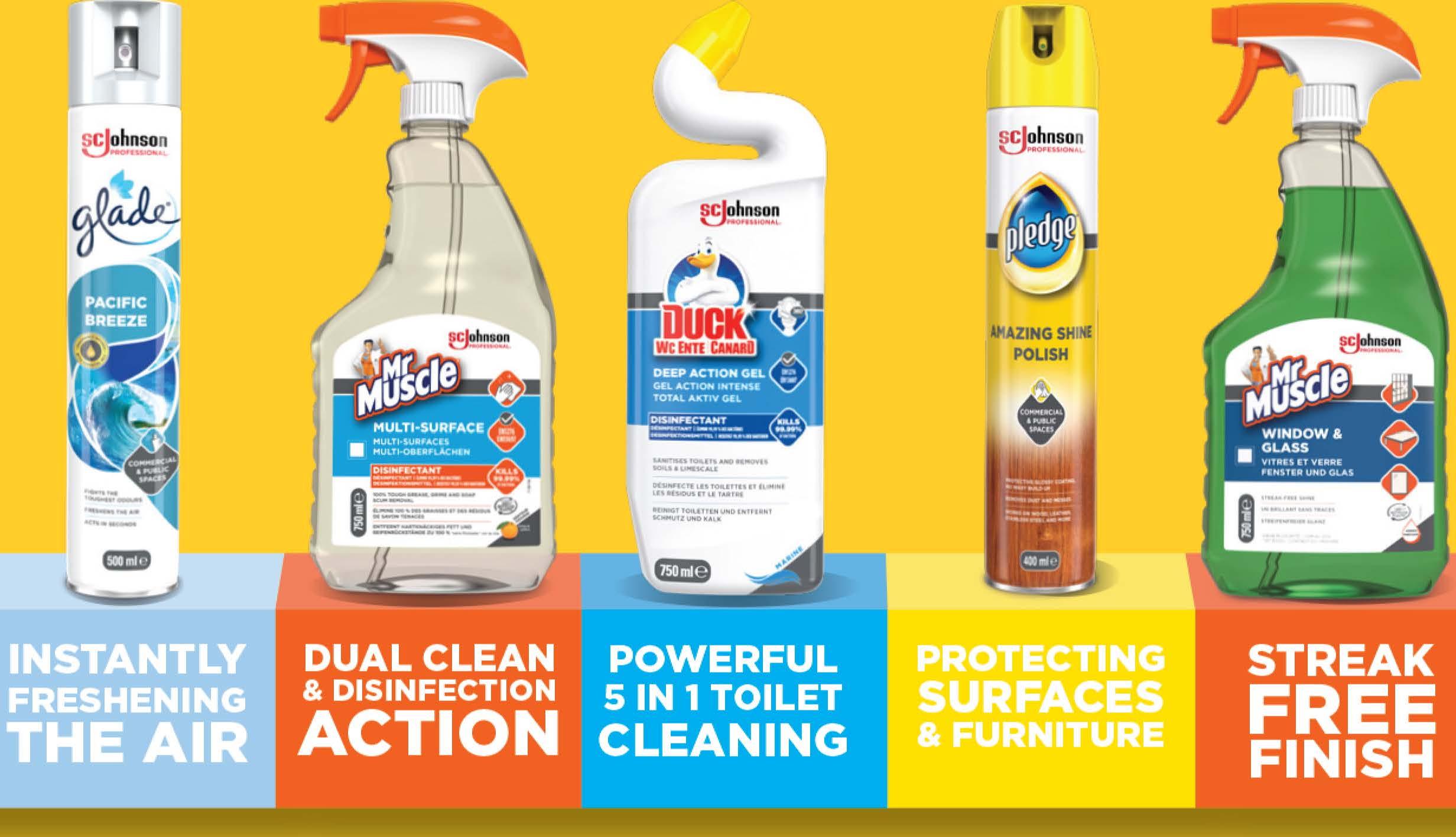

*With respect to Hair Loss tested usingSCJ's Patented Full Hair Clog Test (laboratory tested on bathroom clogs hair and soap). For tougher clogs, leavelonger.
Mr Muscle® Multi-Surface, Method® and Duck® Deep Action Gel - Use biocides safely. Always read the label andproductinformation beforeuse.


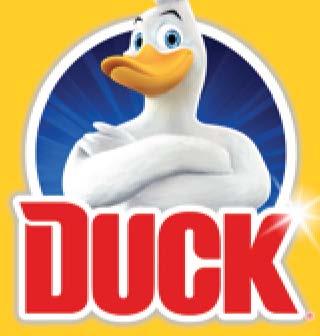



Workplace360: Many people may not be overly familiar with Arco. Could you introduce the company?
Simon Allan-Brooks: Arco is a 140-year-old British business and owned by three generations of the Martin family until 2022. Originally based in London, Arco relocated to Hull in 1898, which remains the centre of our operations today.
Over the years, we’ve evolved in terms of size and scale and developed a broad range of safety products that now serve all industries as well as some very niche and specialist markets.
When COVID struck, Arco’s expertise was put to use for the good of the pandemic effort. We collaborated extensively with the government and industry professionals to support the response. That period brought greater visibility to the Arco brand, especially beyond our traditional audience, and positioned us more prominently within the business supplies world.
In 2022, Arco transitioned from being family-owned and run to being family-owned but corporate-run. Guy Bruce joined shortly after as the new CEO, marking a pivotal change in how we operate. The Martin family
remain the principal shareholders, with Thomas Martin continuing as non-Executive Chairman, but now there is a fully established C-suite leadership team. Guy recruited a CFO and a COO, and I joined as Chief Commercial Officer, completing the executive team.
Today, we operate with a blend of strategic and regional business models. Regionally, we have 23 locations across the UK and Ireland, which serve as traditional walk-in branches where customers can purchase products directly. These branches support the trade function and smaller businesses through a hands-on, customer-focused approach. On the strategic side, we work with public sector organisations and key customers, providing end-toend safety services and solutions that span from local trade to global PLCs.
We also have a subsidiary, Arco Professional Safety Services. Its primary focus is on working at height and in confined spaces but also includes IOSH and NEBOSH qualifications, first aid training and other essential safety services. It enables us to deliver end-to-end solutions, from training to product sales.

Workplace360 caught up with Arco Chief Commercial Officer Simon Allan-Brooks, to chat about the company’s evolution, safety expertise, future growth opportunities and plans to partner with independent dealers
Arco’s combined UK and Ireland operations generate a turnover of approximately £290 million to £300 million annually. We recently published our financial results, reporting a strong EBITDA of £8.4 million last year, which is a positive reflection of our efforts.
Currently, we’re in a transitional phase. When Guy joined, the focus was on fixing the foundations of the business. Now, we’re shifting into the next stage: building for growth. This is an exciting period and marks a transformative point for Arco as we redefine how the company is perceived in the market.
W360: From a product perspective, how would you categorise Arco – manufacturer, wholesaler, reseller?
SA-B: Predominantly, we’re a reseller. We work closely with key strategic partners and vendors, including well-known names such as 3M, Centurion, JSP, Globus and Uvex. Like all good resellers, we also have our own range – the Arco brand and our Trojan brand.
The Arco brand focuses on being fit for purpose, efficient and cost-effective while maintaining high quality – ideal as an everyday solution that offers value without compromise.
Trojan, on the other hand, is positioned as a more performance- and leisure-oriented brand. Competitively priced, it’s designed to rival brands like Mascot and Snickers in the trade sector.
Outside of commodity goods, there is more to selling PPE products than meets the eye
W360: How does Arco intersect with the business supplies industry?
SA-B: Having spent part of my career with companies like Antalis and Viking, I can say that health and safety products represent a natural category extension for dealers, and it’s one we’re seeing more of. Having been a buyer and consumer of safety products while in warehouse and operational management, I do know it’s not that easy.
Outside of commodity goods, there is more to selling PPE products than meets the eye. This is where Arco can step in to support dealers by offering education and insight into the complexities involved with PPE and workplace safety. This includes the necessary quality standards, regulations and even the annual testing and maintenance regimes required –especially in cases where the protection is literally a matter of life and death.
High-risk environments demand a level of expertise that ensures customers are supplied with the right products and solutions for their specific needs. Arco sees its role not as competing with dealers but as helping them navigate this category. Our “experts in safety” ethos isn’t just something we wear as a badge and use as a marketing ploy. We live and breathe it.


W360: Two words come to mind: cannibalisation and margin. Is there enough margin to introduce another intermediary between the vendor and the end consumer?
SA-B: Yes, absolutely. Vendors have been navigating this model successfully for a long time. When it comes to our own label brands, Arco and Trojan, we can do that.
We’re the market leader, with good volume and trusted manufacturing partnerships that enable us to support this approach effectively. There’s definitely margin opportunity for everyone in a sensible and structured way, which is why we’re pivoting in the way that we want to work with UK dealers.
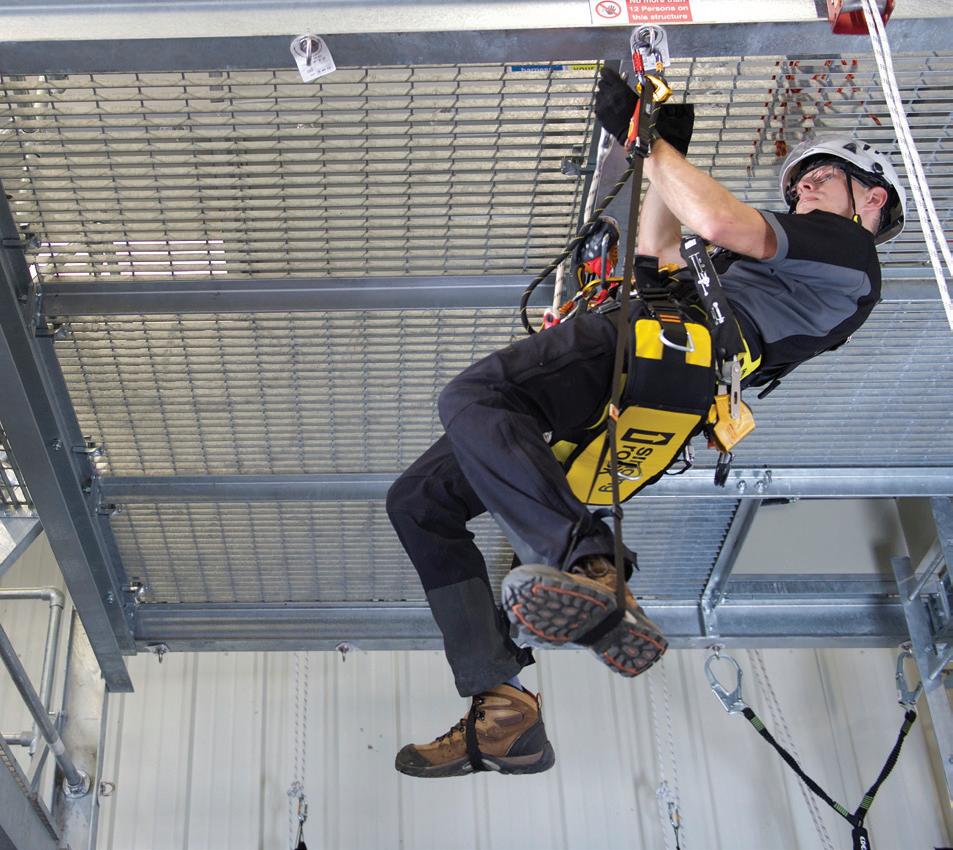



We wouldn’t look to cut dealers out because that’s not how we operate
W360: Why should a business products dealer trust Arco as a partner, knowing that, down the line, you could potentially bypass them and deal directly with their customers?
SA-B: A fair question. Let me turn it around slightly –what we’re seeing across the market right now is more and more vendors shifting to sell directly to customers themselves. Arco has deliberately avoided entering that space from the outset to prevent such conflicts. What sets us apart is our expertise in safety, our deep knowledge base and the trust and loyalty we’ve built with our customers over the years. That same trust is something we’re willing to extend to our partners. There’s enough market share for everyone, and we recognise the importance of defining where a generalist should take the lead and where a specialist like Arco is better suited.

To address your question directly, yes, there’s always an element of risk in any partnership. However, our track record demonstrates that we don’t compromise our professional values by undermining our partners.
We wouldn’t look to cut dealers out because that’s not how we operate. Trust is foundational, and we expect it to work both ways. Just as we wouldn’t undercut a partner, we wouldn’t expect them to act against us either.

W360: And Arco has no plans to diversify into other categories?
SA-B: Absolutely not. We’re committed to staying in our lane and focusing on what we do best. Being trusted experts in safety is core to who we are, and we have no interest in category expansion.

W360: How would you compare the competitive environment in the safety channel to the business supplies sector?
SA-B: It’s strikingly similar in many ways, especially over the last five years as go-to-market strategies have increasingly focused on category extensions. One thing that stands out is that the safety industry hasn’t experienced the same decline seen in other sectors.
Legislation has ensured that safety remains a nonnegotiable priority for businesses, which keeps the UK market robust – worth around £2.6 billion when you include training, products and services.
The biggest fear for me is the rise of online marketplaces as they present a significant risk in this space because they operate unregulated. While they may be great platforms in other respects, safety products require oversight to ensure compliance, quality and reliability.
W360: What are the service level expectations?
SA-B: Traditionally, the industry has operated on a day one for day three model. This stems from the nature of the environments in which safety products are used –warehouses or stockrooms where there’s typically no urgent need for next-day delivery. However, this is starting to shift.
With the influence of workplace supplies players and the likes of Amazon and Temu offering next-day delivery, expectations are evolving. We can absolutely meet those demands. That said, the traditional model allows us to interact with customers in a more deliberate way, helping them to optimise stock levels and manage the total cost of their supply chain – not just the cost of safety.
I believe next-day delivery will become a baseline expectation within 18 months, mirroring trends in other sectors. Beyond that, same-day delivery could become critical for specific products, particularly highturnover commodities like disposable gloves.
For industries like healthcare, where speed is paramount, same-day delivery might be the norm within two years.
W360: Every conversation with vendors and resellers inevitably turns to sustainability. How does Arco approach this?
SA-B: Sustainability is one of our main priorities and we hold an EcoVadis gold certification. Our UK branch network allows us to deliver social value, utilising the resources and outreach we have within that regional footprint. As experts in safety, ESG naturally aligns with our core mission.
We work closely with sustainability leaders across organisations, and much of what we do – such as circularity and recycling initiatives – directly support environmental goals.

For example, our Arco and Trojan label products are designed with sustainability in mind, focusing not only on recycled materials but also on designing upfront for environmentally friendly end-of-life solutions.





Marius Moldovan and Andy Page explain why laptop stands belong in the business supplies channel
Working on a laptop comes with its challenges – neck strain, poor posture and limited screen adjustability, to name just a few. However, for hybrid and office-based employees, a functional remedy can often be as simple as a good-quality laptop stand. By elevating the screen to eye level and encouraging better posture, stands improve comfort and productivity. For dealers, the growing focus on workplace wellbeing presents a valuable opportunity. Customers –typically office managers and IT professionals – already understand the value of ergonomic tools. Yet, the laptop stand category remains unfamiliar territory for many dealers. Selling these products effectively requires a clear understanding of what makes a great laptop stand and why clients are willing to invest in one.
A laptop stand isn’t just a desk accessory – it’s a tool for healthier, more efficient working. Here’s what customers look for in a quality product:


Marius Moldovan is General Manager at Standivarius
• Comfort: A stand should elevate the screen to an optimal height, helping to alleviate neck and back strain. Designs based on ergonomic principles make all the difference.
• Portability and ease of use: Lightweight, foldable stands are ideal for hybrid professionals transitioning between home, office and on-the-go setups.
• Durability: High-quality materials, such as aluminium, not only ensure longevity but also look and feel more professional.
• Sustainability: Customers increasingly value goods that align with environmental goals, both in materials and manufacturing.
• Value for money: While quality stands often carry an elevated price tag, their superior design and durability make them a worthwhile long-term investment.
Adding ergonomic products like laptop stands to the portfolio makes good business sense. IT accessories have historically offered higher profit margins than traditional office supplies, and the demand is steadily growing as more organisations and workplaces prioritise employee wellbeing.
Existing customer relationships are a key advantage. Regular points of contact, such as office managers and IT teams, are often familiar with this category through other channels, making it easier for sales teams to introduce laptop stands into the conversation. By offering these products, dealers can:
• Boost profitability with high-margin accessories.
• Meet rising customer expectations around workplace wellbeing.
• Stand out in a competitive market by providing a comprehensive offering.
Sales teams have plenty of opportunities to succeed with laptop stands. The key is to focus on customer needs; rather than listing features, explain how a stand can improve posture, reduce strain and make work more comfortable for users. Practical examples tend to resonate more than technical details.
Bundling these products with complementary products like external keyboards, mice or monitor risers, can make their value clearer and provide a complete solution while increasing overall sales. To ensure success,


Andy Page is Business Development Director at Standivarius
it’s essential to provide the resources and training the sales team needs to discuss the ergonomic benefits with customers confidently. There’s no shortage of information available to support this effort.
Laptop stands are far more than just a simple accessory –they’re an effective way to improve workplace comfort and productivity. They represent an opportunity for dealers to tap into a growing market, connect with existing clients in new ways and increase margins with high-quality products. It’s a straightforward addition to any portfolio and can deliver big results for sales teams and their customers.

Adding […] laptop stands to the portfolio makes good business sense
Businesses must navigate advancements in PPE and workwear, balancing compliance, innovation and sustainability to protect workers effectively. By Kate Davies
Workwear and PPE are not just regulatory necessities – they are crucial to safeguard employee wellbeing and improve workplace efficiency. As businesses look ahead to 2025 and beyond, trends in sustainability, technology and inclusivity are shaping this sector.
Sustainability is increasingly becoming a major driver for change in the industry. However, while 78% of respondents to the 2024 Health & Safety Report by RS Components expressed a willingness to pay more for sustainable products, only 2% prioritise sustainability in purchasing decisions. This gap underscores the obstacles when balancing cost pressures with environmental targets.
Innovations like Moldex’s refillable PlugStations offer a practical solution for reducing waste. In addition to using durable refill bags made from 100% recycled plastic, this dispensing system releases only one or two earplugs at a time, minimising product waste.
Beeswift is also driving change with Envirowear, a line of recyclable workwear made from Global Recycled Standard-certified rPET. At the end of its lifecycle, Envirowear can be fully recycled, contributing to a circular economy and lowering environmental impact.
Each year, 40 million workwear garments in the UK are incinerated or sent to landfill, largely due to mixed fibres and non-recyclable trims. Professional workwear laundry services offer a sustainable alternative, extending garment lifespans and ensuring compliance with safety regulations.
Unlike home washing, which can degrade protective properties, specialised laundry facilities help maintain the integrity and effectiveness of PPE. For dealers, partnering with reputable laundry providers presents an opportunity to add value for customers by offering managed workwear solutions.
Smart PPE – including internet connectivity, tracking and real-time health monitoring – has the potential to revolutionise the industry. Companies such as Stanley are leading the way with AI-driven platforms like WearHealth, which match businesses with exoskeleton suits to boost efficiency and wellbeing. For example, TECHNAL UK, a low-carbon aluminium systems supplier, trialled the Hapo exoskeleton suit from ErgoSanté based on WearHealth’s guidance. Workers reported reduced fatigue, with results showing a 30% reduction in lower back strain and up to five tons less daily load.
Smart PPE [...] has the potential to revolutionise the industry

Source: 2024 Health & Safety Report, RS Components
12,000
No. of workers with work-related hearing problems from 2021/22 to 2023/24
Source: Labour Force Survey, Health and Safety Executive
The Hapo sensor is another innovative device. The smartphone-compatible sensor accurately assesses the intensity and frequency of the user’s movements, quantifying the weight relief during the activity.
Despite its potential, Arco Chief Commercial Officer
Simon Allan-Brooks says smart PPE has failed to find any meaningful place in the UK. “There is a barrier due to cost, and it therefore remains a niche sector. But, like all technology, this will change with adoption and natural cost reduction.”

Inclusivity in workwear is crucial to ensure workers of all genders, ages and body types have properly fitting, safe and comfortable equipment. Advantia Managing Director Steve Carter notes rising demand for women’s workwear, in particular: “More women are taking up historically male-orientated roles, with manufacturers developing their offerings accordingly.”
Allan-Brooks concurs, adding: “The range of inclusive workwear and PPE has vastly increased, but we still have a long way to go to get near the choice available to men. I expect we’ll see the same momentum for inclusive PPE as we’ve seen with sustainable clothing in the next couple of years.”
Although progress is being made, many women and younger workers still struggle to find properly fitting workwear, leading to discomfort and reduced safety.
Allan-Brooks says having the right mix of proprietary and Arco brands is vital to give customers the range they need. “Our fastest-growing category is protective wear, with hi-vis, flame-resistant and arc-flash garments seeing year-on-year sales growth.
“As a result, there’s been a strong drive to improve the features, fabrics and styling to bolster appeal to a younger demographic.”
According to the RS Components survey, 82% of respondents believe more needs to be done to ensure women have suitable equipment, yet only 1% consider this a priority during procurement. This is even though a quarter of those surveyed say 40% or more of those in their workforce who need PPE are women.
Katherine Evans, founder of Bold as Brass, a LinkedIn support network for women in construction, mining and quarrying, highlights the essential need for equality within workwear. In a recent LinkedIn post, she wrote: “Right now, PPE that’s easily available isn’t inclusive of everyone, and not because PPE for everyone doesn’t exist but because it isn’t being bought.
“Standard PPE is only personal to average-shaped, non-religious, cisgender, Caucasian, neurotypical,
We’ll see the same momentum for inclusive PPE as we’ve seen with sustainable clothing in the next couple of years


able-bodied male humans, so can we even call that PPE ‘standard’ at all? Discriminatory is the word I see.”
Compliance and maintenance remain major challenges, with alarming gaps in quality control. A 2024 audit by the British Safety Industry Federation (BSIF) found an 88% failure rate for non-member products. From wornout hi-vis clothing to damaged helmets, outdated PPE compromises safety and legal compliance.
Workwear and PPE must be properly maintained and regularly reviewed to guarantee it’s fit for purpose at all times and workers are safe. For dealers, offering expert guidance and reliable PPE solutions not only supports workplace safety but also strengthens customer relationships and positions them as valuable partners in compliance and risk management.
Counterfeit PPE also poses a threat, with 37% of respondents in RS Components’ 2024 Health & Safety Report identifying it as a major anxiety. The report also noted growing difficulties in sourcing quality products, with concern rising from 26% in 2023 to 28% in 2024.
Online marketplaces further complicate the issue, making it harder to enforce regulations under the current legal framework. In Northern Ireland, the introduction of the General Product Safety Regulation (GPSR) in December 2024 offers a blueprint for addressing these marketplaces.
The regulations introduce certain requirements regarding product labelling, traceability and documentation. Importantly, companies like Amazon and eBay must register with the Safety Gate Portal, which alerts customers to unsafe products.
While the GPSR doesn’t apply to the rest of the UK, there is optimism around the Product Regulation and Metrology Bill, which is progressing through Parliament.
Workwear isn’t a category to be frightened of – it just needs expert advice and supplier knowledge
This legislation aims to address some of the regulatory issues posed by e-commerce marketplaces and has the potential to improve oversight and accountability for PPE quality in the UK.
Despite these challenges, confidence in providing a safe workplace is growing. The proportion of people who feel confident or very confident in their ability to protect workers from physical harm increased from 77% in 2023 to 81% in 2024, according to the RS Components survey.
Carter advises dealers to leverage expertise to continue to navigate this complex category with confidence: “Dealers need to understand what they’re offering. This is workwear and, in many instances, it must meet safety standards, so cheap is not always best. Workwear isn’t a category to be frightened of – it just needs expert advice and supplier knowledge.”
As the workwear and PPE market evolves, dealers have a key role in helping businesses balance cost with quality, sustainability and inclusivity. Dealers can:
• Stay ahead of the game: Keep customers informed about innovations such as smart PPE.
• Prioritise individual needs: Help select the right PPE and workwear for different roles, delivering proper fit, comfort and protection for all workers.
• Emphasise maintenance: Educate customers on the importance of regular stock reviews to keep PPE effective and legally compliant.
• Promote a culture of safety: Help customers understand how prioritising worker wellbeing improves morale and productivity.




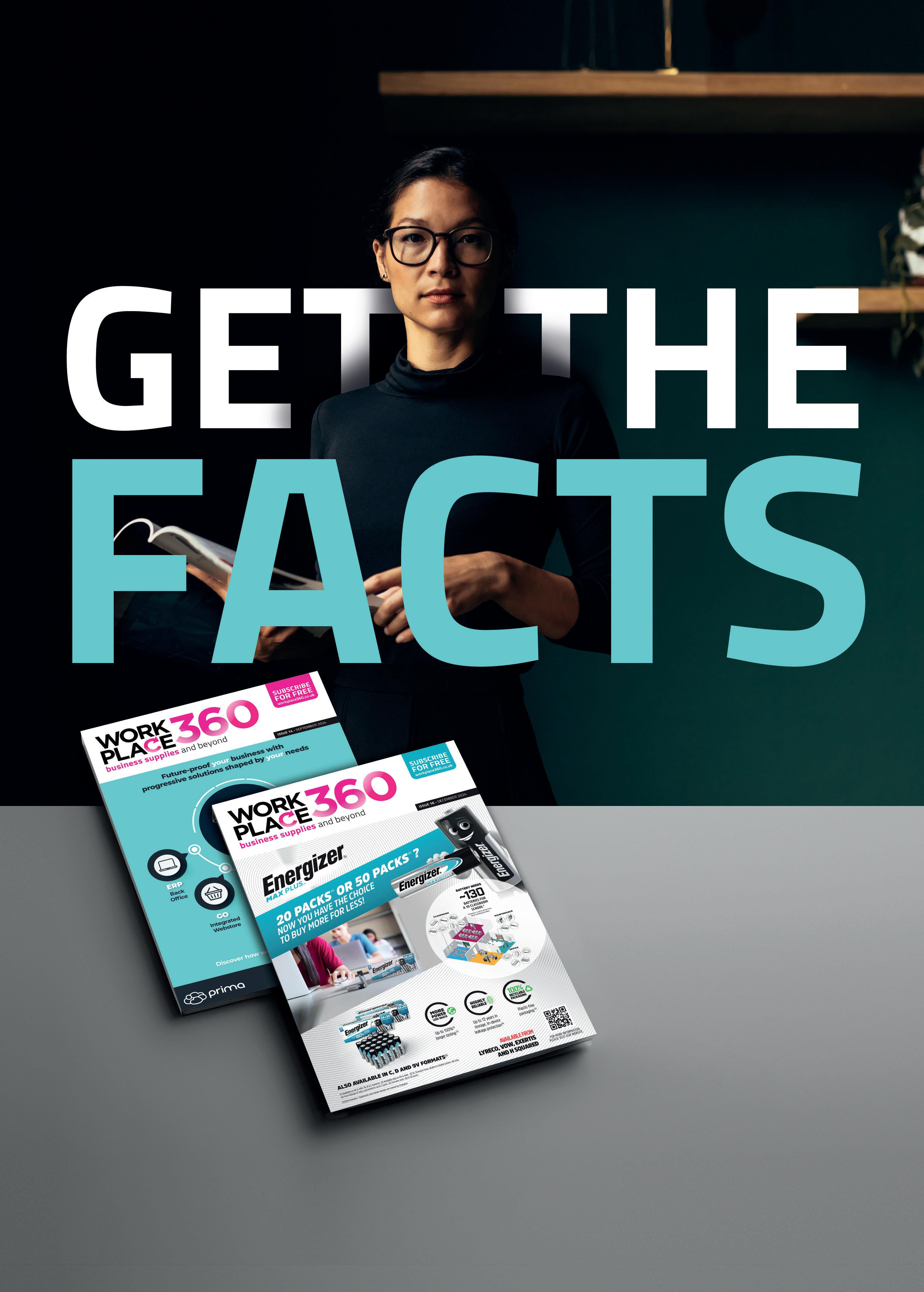

Workplace360: To kick us off, please share your history with BOSS Leaders of the Future (LOTF).
James Day: I joined LOTF in 2019 after recommendations from colleagues at Durable and others in the industry, many of whom I was just beginning to get to know at the time. It’s been a fantastic environment for meeting like-minded individuals. Over the years, many of those who’ve been part of the committee have become people I trust and can rely on for honest opinions and advice.
Amy Remmer: My journey with LOTF began with immediate inspiration. From that first event, I knew I wanted to be more involved. Applying to the committee was daunting, but I overcame my fears and took the leap. Witnessing the exceptional leadership of Alex Stone and Rachael Lewis as they concluded their tenure ignited a desire within me to contribute at a higher level. My passion for this industry and dedication to supporting others in their career growth fuelled my decision to pursue the leadership role.
W360: All right, let’s discuss your two-year roadmap.
JD: We’ve called it Solving the Puzzle for Individual Growth. The idea is that personal development is a jigsaw puzzle – a bridge between where people are now and where they want to be.
We’ve deliberately avoided defining ‘success’ because it’s subjective and doesn’t necessarily mean earning more money or getting a higher-ranking job. For some, it’s about improving assertiveness, building associations or mastering specific skills.
To create the roadmap, we gathered feedback through questionnaires and discussions, identifying eight core subjects aspiring young leaders value most. These now form the foundation of our events. For example, our last conference – which was our first as co-Chairs – concentrated on imposter syndrome and self-confidence and the aim is for each event to provide a ‘puzzle piece’ for participants.

AR: We have outlined a roadmap for the future, identifying key areas crucial for career development. Our upcoming webinar and in-person conference in Q2 are strategically designed to address these critical topics directly, providing professionals with the essential tools and knowledge they need to thrive.
We understand that career growth is not a linear path, but a dynamic journey filled with challenges, triumphs and the resilience to overcome obstacles. Some individuals may already possess key elements of success and are poised for significant advancement. Our mission is to assist them in connecting the dots, bridging any knowledge gaps and building the momentum they need to lead with confidence.
W360: So, what’s on the horizon?
AR: We have some exciting plans in the works. One key area we’ll be exploring is finance for non-finance professionals – an interactive, hands-on learning experience in a new and exciting area. We’ll also delve into crucial areas like conflict resolution and negotiation skills, which are essential capabilities for anyone navigating relationships with stakeholders, clients or colleagues.
We’ve always prioritised building confidence in our participants, which has proven invaluable. Now, James and I are taking our approach to the next level. We’re focusing on delivering highly practical, skills-based sessions that equip participants with the tools they need to excel.
W360: What else are you looking to focus on going forward?
JD: Ensuring all parts of the industry are wellrepresented. Dealers, for example, have been slightly underrepresented in the past, but it’s starting to change. At our last conference, we saw great representation from companies such as United UK and Heatons, thanks to Alex championing this effort.
Looking ahead, I’d like to see a strong balance across wholesalers, dealers and manufacturers. Another key focus for us is encouraging audience participation. At these events, you often hear the same voices, but we want to create an environment where everyone feels comfortable contributing.
AR: We’re also eager to attract a more diverse range of people from various roles and organisations. While we have a strong presence within the sales and marketing sector, we want to emphasise that LOTF is not solely focused on sales. It’s a growth programme designed to help individuals at all stages of their careers, regardless of their current role or seniority. Continuous learning is essential throughout any professional journey, and it’s never too late to acquire new expertise and boost your career.
LOTF offers a community for anyone at any stage of their career to form meaningful connections across the industry
W360: Are you looking to expand the LOTF community? If so, how?
AR: Absolutely! The aim is to utilise the BOSS website to enhance community engagement. We’ve created a dedicated section under Special Interest Groups that serves as a central hub. This platform provides access to resources like webinar recordings and past conference content. It also includes forums where members can discuss topics of interest, share ideas and provide feedback.
We actively encourage forum participation. While we have planned key topics for upcoming sessions, we’re open to adapting our plans based on the valuable feedback we receive from our community.
W360: LOTF certainly seems to be creating our next generation of leaders, colleagues and friends within the industry.
AR: Definitely. When I first started attending industry events, I felt like an outsider. I knew no one, and being one of the few women in the room was overwhelming. I was surrounded by accomplished business leaders –mostly men – who exuded confidence and familiarity. Joining LOTF was a game-changer. It gave me the courage to believe that I belong and could be that leader. Now, I’m determined to help others feel the same. Our mission is clear: we are creating a strong and supportive safe space where young professionals can thrive and rise with confidence.
JD: I couldn’t agree more. The camaraderie in our industry is unique and sets us apart. The willingness to share knowledge and experiences and to help each other is rare.
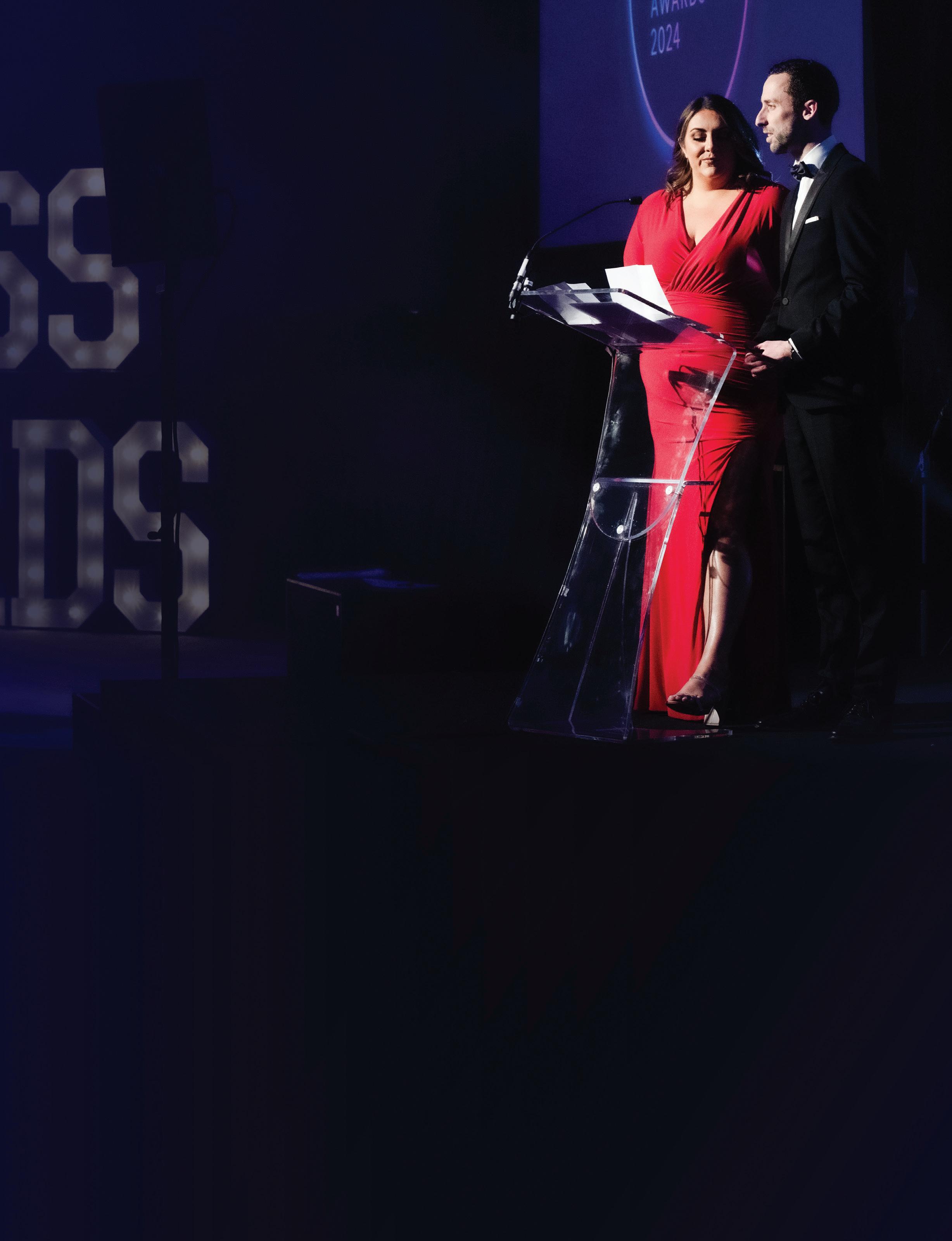
W360: One final question – what’s your message to the industry?
JD: It’s simple: LOTF offers a community for anyone at any stage of their career to form meaningful connections across the industry. This isn’t just for professional development; it’s personal too and LOTF offers real, tangible value. Personally, it’s helped me become more confident in conversations with customers and my peers.
If anyone would like to know more, contact me or Amy. We’re happy to chat and share the LOTF story and the benefits it offers.
AR: By encouraging employees to be part of something like LOTF, you’re cultivating the next generation of diverse leaders who will shape the future of our industry for years to come.
When I began my career in sales at VOW at 18, it was simply a job. However, I quickly realised my desire for growth – to lead, inspire and create opportunities for others. For those who may not find those opportunities within their current workplace, LOTF becomes that platform.
It provides a neutral space for guidance, growth and the tools needed to unlock their full potential and a place to make friends and lifelong connections.

What single parenting teaches us about leading others
Balancing a leadership role in the corporate world while being a single parent isn’t just a challenge; it’s a crash course in resilience, time management and empathy sprinkled with a healthy dose of chaos. Let’s be honest: whether you’re negotiating bedtime with a ten-year-old or budgets with the board, both scenarios require a mix of grit, adaptability and the occasional bribe (iPad time for my daughter or a coffee for myself).
One of the first lessons I learnt as a single parent was the art of prioritisation. When juggling a career with raising a child, you don’t have the luxury of overthinking. Decisions are made quickly. Do I tackle that mountain of emails or whip up dinner before my daughter starts snacking on cereal straight from the box?
Managing a team has taught me to separate the ‘must-haves’ from the ‘nice-to-haves’, a skill honed while trying to convince a small human that no, she doesn’t need a £30 per bottle skin care product.
THE ART OF DELIVERY
This mindset is all about results. At home, it’s about a meal on the table and showing up at after-school clubs – ideally looking semi-put-together. At work, it’s about achieving the numbers, submitting reports and providing my team with timely feedback so they can succeed. While the stakes may differ, the core principle remains: focusing on what truly matters and delivering.
Empathy, though, is where single parenting and leadership really overlap. Parenthood gives you a frontrow seat to the spectrum of human emotions (usually during a meltdown about going to school). It’s taught me to listen, really listen, and be present.
When leading a team, understanding individual challenges and supporting employees to overcome them can be transformative. In today’s workplace, this empathy must extend to prioritising wellbeing. Creating an environment where employees feel supported –emotionally and professionally – is no longer optional. It is essential.

Stacey Bazdar is Head of Business and Education at Ryman
Initiatives like flexible working arrangements, mental health resources and open communication demonstrate a commitment to wellbeing that not only improves morale but also drives productivity and retention. Just as fostering emotional resilience in children requires attentiveness and patience, cultivating a culture of care at work builds trust and loyalty within teams.
Then there’s time management. As a single parent, your day feels like a game of chess. Every move counts and you’re always thinking several steps ahead. But you learn to make it work. School drop-offs, work meetings, swimming lessons – every moment is accounted for. This skill naturally transitions into leadership roles, where effective delegation and strategic planning are key to success. For instance, setting clear goals and empowering your team to achieve them mirrors the structure and routine that helps a household thrive.
Moreover, the balancing act creates a unique form of resilience. As a single parent, you learn to navigate setbacks with a calm demeanour because showing frustration or giving up isn’t an option. Whether it’s a missed deadline or a tantrum at bedtime, you find solutions and push forward with a calmness that enhances work and home life. This resilience becomes a hallmark of leadership – the ability to remain composed and proactive in the face of adversity.
Cultivating a culture of care at work builds trust and loyalty
Ultimately, being a single parent in a leadership role is not about doing it all; it’s about doing what matters most with intention and authenticity. It’s about showing others that success is not measured by perfection but by perseverance. By embracing the lessons from parenthood, leaders can inspire their teams to find balance, focus on priorities and face challenges with unwavering determination.
The beauty of our circumstances, whether at home or in the workplace, is that they shape us. Within those challenges lie opportunities to grow, lead and inspire. And within every difficulty, we find strengths that not only enrich our lives but also create workplaces where individuals and teams can truly thrive and become the best version of themselves.
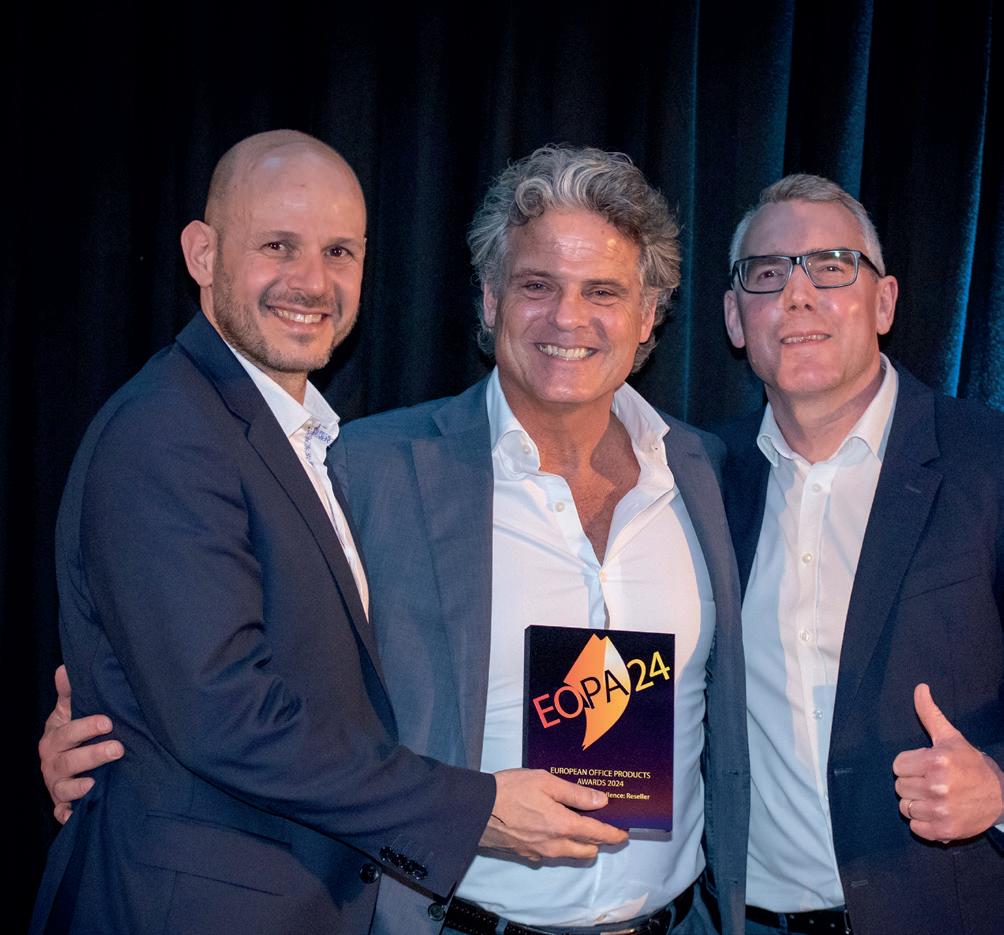

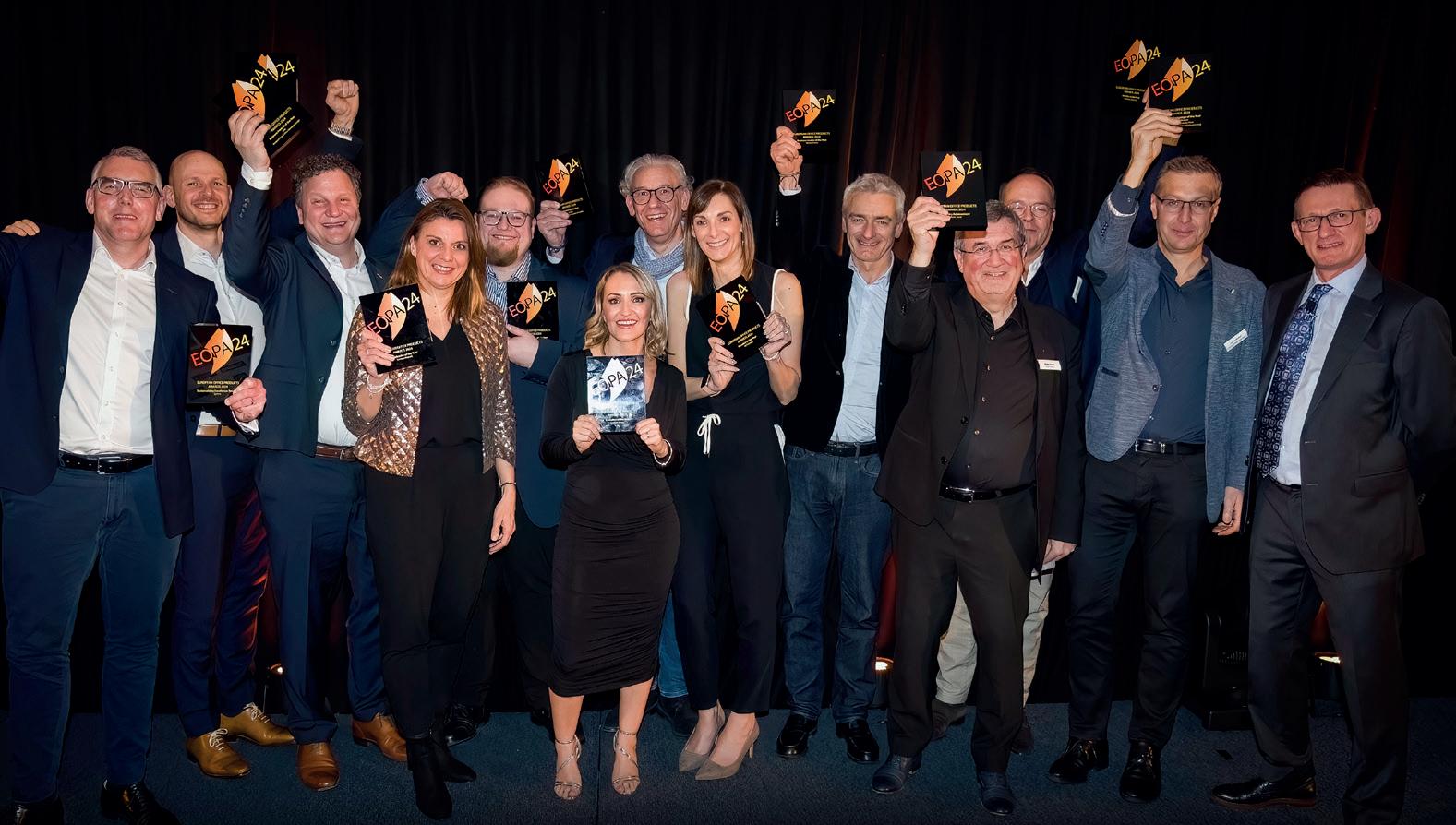




Who is your hero?
My mum – both personally and professionally. She’s raised two sons while building a successful career across multiple industries and countries. She’s truly a benchmark for endless energy, resilience and ambition.
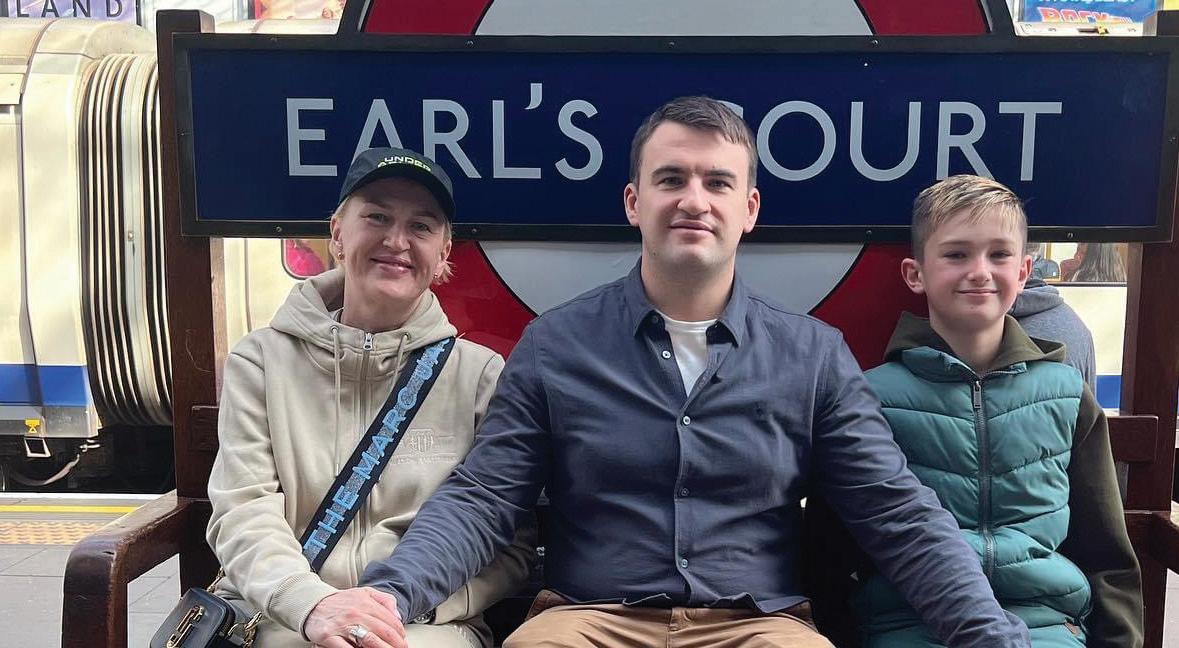
Volodymyr
Tell us a secret that your colleagues don’t know about you. When I was very young, I wanted to become a standup comedian. I used to perform jokes and poems at my parents’ house parties!

What’s something new happening in your life right now?
I spent this December holiday in Canada, celebrating New Year at Niagara Falls. Even though it was good to experience a proper winter with plenty of snow and freezing temperatures (-20°C!), I missed the normal British winter – mild and rainy.
Strangest thing you’ve ever eaten?
‘San-nakji’ – a Korean dish of raw, chopped baby octopus that’s still moving when it’s served. The name literally translates to ‘wriggling octopus’.

Which phone app do you use the most?
The Trainline and Uber apps, as I’m constantly travelling around the UK to meet customers – often in the middle of nowhere!
Proudest accomplishment?
At 16, I moved to the UK from my home country, Ukraine, to study. It was a leap into the unknown, as I had no family or friends here. I am proud that I was brave enough to go abroad, and now the UK is my second home, with many great friends and colleagues who have become my extended family.

What’s the weirdest online purchase you’ve ever made?
I once bought a Durex mystery box to use as a raffle prize for a customer event.
Best concert you’ve ever been to?
Seeing the Red Hot Chilli Peppers and Depeche Mode live was great, but Liam Gallagher in Belfast was absolute carnage!
One of your best childhood memories?

When I was about six, I had a ride in a dog-drawn sleigh. It only lasted five seconds as the dogs started pulling in different directions, leaving me upside down in a pile of snow.
What’s something you’ve done that no one would believe if you didn’t have proof?
I trained in the Brazilian martial art of capoeira throughout my teenage years. At one point, I even ran classes for beginners and kids at my local capoeira school.
Last book you read?

Thinking, Fast and Slow by Daniel Kahneman.
What outrageous luxury would you love to have in the office?
A helicopter to commute to work in Slough.

If you could instantly acquire one skill, what would it be?
I have a very curious mind and can spend hours on the internet exploring topics like business, history, geography, etc. I wish I could read and absorb information at ultra-fast speed – like Leeloo from The Fifth Element.

Favourite holiday so far?
I can’t decide between Cancun, Mexico, and Port Douglas, Australia.










New life for beverage cartons. EcoNaturalisaneco-friendlyPAPER+DISPENSER system, afullycertified andconcreteexampleofthecirculareconomy. LucartProfessionalgives newlifetobeveragecartoncomponents: ituses Fiberpack® producedfrom thecellulosefibrestomakepaper, andthealuminiumandpolyethylene to produceALPe.® , therecycledrawmaterialfromwhichdispensersaremade.



10.7 BILLIONS ofbeveragecartons recovered.1
1Source· Lucart SustainabiLity Report, 2013-2023. considering1lbeverage cartons.

